|
|
||||||||||||||||||||||
Bravo Cura
Celebrating José Cura--Singer, Conductor, Director
Operas: Otello
Otello - Barcelona - 2006
|
Reviews Otello, Barcelona, February 2006: “José Cura can be a real ham--and he is--but nowadays, there is simply no one else who knows how to make so much out of the Venetian Moor. He was stunning in an impressive ‘Esultate!.’ He glossed over a few notes in the love duet to make it more accessible, but he was irreproachable in the duets with Iago and Desdemona as well as in his two great solo scenes. It is a pleasure to be able to listen to an Otello like this, one who doesn’t make the spectator suffer in the least, when there have been outstanding Otellos who have had difficulties in the second and third acts.” La Razón, February 2006
Otello, Barcelona, February 2006: “"He is what he is." Iago’s definition of Otello serves as well for José Cura. The Argentinean tenor is one of the current interpreters of reference in the title role, as long as you like his idiosyncrasies: coarse sounds, phrases that are spoken with pressure, high notes that are just and sustained as little as possible, volume less generous volume than it seems. His slides, moans, sighs, and crying point to a conception of Otello that is more melodramatic than truly tragic. If we accept all this, what is left? Well, it's charisma at its best, served by a bronzed look and an accurate delineation of the Venetian general's emotional turmoil. It is not so insignificant.” Avui, 11 February 2006
Otello, Barcelona, February 2006: “This Verdi masterpiece is only mounted when the right interpreter can take the lead; in this case, that lead was the singer considered to be the most outstanding Otello of the moment, José Cura, who shunned the usual ‘Del Monaco’ interpretation to fill his character with edge, pianissimos, and middle voice. That’s not to say he was careful, perhaps even too much so, which resulted in a surge of emotion when he was vocally generous, when that silvery and steely timbre that is so unique to him appeared. The best of his beautiful singing voice lay in his high range, better, when he sings ‘forte;’ that, in addition to being a stage angel, makes him a theatrical winner.” ABC, 11 February 2006
Otello, Barcelona, February 2006: “In the person of José Cura, Willy Decker has a truly first-rate artist at his disposal to portray this complex being [Otello] who is under fire every which way. The tenor, at his peak in terms of his voice as well as his expressiveness, lives the role, and the way in which he takes over and fills the space (on stage) is exceptional. His metallic timbre with its burnished sparkle, his projection and the intensity of his accentuation are ideally suited to his character, with whom he seems to have become identified ever since he took on the role in 1997. Of sensual charm and animal magnetism in the love duet, the actor later gives free reign to his uncertainties and to his pain in terrible epileptic fits, where he whimpers, moans, groans and twists down to the ground with confounding realism. Praying, uttering blasphemies, and clinging to a simple, omnipresent wooden cross that is like a fallen crucifix, Otello has come back to Cyprus to suffer, to humiliate and degrade himself, and to die under sinister Iago’s gaze of satisfaction and approval. Whatever admiration one has for Cura’s vocal stamina, good looks and naturalness, it is impossible to resist his commitment and his emotional investment, which gives rise to such a deeply felt performance. A memorable evening.” Concert Classic, February 2006
Otello, Barcelona, February 2006: “The Liceu has done nice work in presenting Otello, vocally the most demanding opera of the mature Verdi, with one of the best teams possible. To start with, there is José Cura in the leading role. The level of his performance was excellent, as much in the vocal as in the dramatic sphere. Cura proved himself an excellent actor on stage, which, in this Shakespearean drama, is much to be thankful for. His powerful voice, moments of intensity and sense for the dramatic made for a role of great vibrancy.” La Vangardia, 11 February 2006
Otello, Barcelona, February 2006: “No one can doubt that his version of this Verdi character is solid and interesting. However, the appeal of his performance lies at times more in the theatrical than in the musical. Cura has a stage presence of extraordinary delivery and dynamism, which, simply by stepping on the stage, completely captures the attention. Also, his construction of his character does not manage tension well at some moments and represents a younger and more impulsive Otello than necessary. Nevertheless, the final scene of the opera is flawless in the hands of the Argentinean tenor. Cura has a powerful and impressive voice but it is not beautiful. His emission is tense, it sounds stripped and has a somewhat uneven color that makes it sound closed in the low register and open in the high register. These particularities give him a very personal timbre that he certainly knows how to take advantage of as Otello due to the dramatic charge that this character has. Curiously, his voice improves during the performance, starting hard and fixed in Esultate! and with difficulty finds nuance in the love scene with Desdemona, improving considerably during the second and third acts before reaching the final Niun mi tema full of musicality.” Mundo Clasico, 20 February 2006
Otello, Barcelona, February 2006: “The long-awaited revival of Verdi's Otello at the Liceu had the added bonus of being able to hear in the title role the brilliant tenor José Cura, and having seen and heard him we can confirm that he is well deserving of [the accolades]. Cura embodied the Venetian Moor as a true monster of the stage, forceful and superb in gesture; nuanced, energetic and flexible in voice. Despite the hardness of the role, he overcame the most difficult parts with wise performance and measured intensity, managing to highlight with mastery the contrary feelings that plague the character.” Filomusica, 2 February
Otello, Barcelona, February 2006: “In the title role, José Cura demonstrated that he is currently one of the best interpreters of Otello on the international stage. He relied on his middle voice and pianissimos, leaving for specific moments the vocal generosity required by the role. He is prone to use vocal excess to disguise the fact that the singing line is not properly projected in some passages. In spite of that, and thanks to his charisma and great theatrical gifts, Cura offered an exciting Otello.” Canto Lirico, 24 February 2006
Otello, Barcelona, February 2006: “Compensating the audience for [the staging] were the soloists, all of them in top form, led by José Cura who, lucky him, is still able to arouse hatred and love to a superlative degree, a rare commodity in these times of reassuring mediocrity. The Argentinean tenor is now able to offer a Moor with a more controlled and homogeneous singing, without that exaggerated gap of the past between the extremes of the dynamic range which spoiled his naturalness. Only an over-confident Niun mi tema spoiled a performance which accorded to the squillo its rightful moments and allowed the persuasive singing line to offer a recitation of great quality. There was great audience enthusiasm towards him …” L'opera, March 2006
Otello, Barcelona, February 2006: “To speak of Otello is to speak of voice. José Cura has the vocal coloring, the power and strength, but above all the dramatic temperament that this colossal Verdi character demands. His best weapon, over and above technique and style, is his stage presence. In his visceral interpretation, the Argentine tenor strips the character of all nobility and puts himself into his skin and tortured psychology in such a way that he fills the stage and tirelessly maintains the dramatic tension until the anguished finale. Cura is Otello. It’s as simple as that.” El Pais, 11 February 2006
Otello, Barcelona, February 2006: “The Liceu’s Otello was one of the most eagerly awaited entries in the current Barcelona season because of the presence of José Cura, the Argentinian tenor that the media is presenting as “the” Otello for the twenty-first century. Three years ago, when Cura replaced José Carreras in a performance of Samson et Dalila at the Liceu, patrons who were able to catch a glimpse of this intense, original performer started spreading the word that those who cared for opera in the city should wait for his return. Last year, Cura shone in a concert performance of Verdi’s rather sketchy Il Corsaro, in which he gave ample evidence of his acting skills and dramatic tenor, but local fans have since been waiting for a look at this artist in a staged performance of a more demanding role. This was Cura’s chance, and his Otello did not disappoint the Barcelona public. Cura’s Otello is a performance that the Liceu audiences will remember for a long time: a profoundly felt, well considered depiction of a man’s descent into madness, paired with a true vocal tour de force. Cura’s tenor is sometimes strained and the sound is not always pretty, but his technique and the communicative powers are astounding.” Opera News, May 2006
Otello, Barcelona, February 2006: “Once you grow used to his idiosyncrasies (crooning, sighs, sobs and other melodramatic effects, besides his peculiar technique), José Cura remains an imposing Otello, full of charisma.” Opera, June 2006 |
|
|
||||||||||||||||||||||
| A Dream of a Tenor Guia del ocio With a powerful, homogenous and very beautiful voice, José Cura is a singer with strong temperament and an excellent actor who also offers great stage presence. As it turns out, he is also the perfect interpreter of the role which many dramatic tenors only dreams about: Otello, the main character in an extraordinary opera by Giuseppe Verdi. Cura will be accompanied by two accomplished singers, soprano Krassimira Stoyanova, who made her debut in Barcelona and baritone Lado Atanelli, who had a great success at the Liceu in the role of Renato in Un ballo in maschera. From the 9th till 27th of February, the Liceu will welcome Otello, conducted by Antoni Ros-Marbà, who conducted this work here 16 years ago. Of the eleven performances, four will an have alternative cast: the principal roles in which will be Valencian soprano Anna Ibarra, tenor Gabriel Sadé and baritones Valeri Alexeev and Carlo Guelfi.
|
|
“My Otello is a traitor, not noble” The singer is considered the best interpreter of the famous "Moor of Venice,” a character who has become the archetype of the jealous man and victim of manipulation P. M. 7 Feb 2006 ABC
The main character in the opera Otello (1887), a product of Verdi’s [artistic] maturity, is one of the signature roles of the Argentine singer, currently living in Madrid, whose relation with the Liceu began almost by accident when he arrived in March 2001 to replace José Carreras shortly before the opening of Samson et Dalila. One unforgettable night After that unforgettable night –- one so memorable that with only that one performance the "Grup de Liceístes de 4. i 5è. Pis" awarded him the prize as the best singer of the season -- Cura made his official debut in January 2005, singing Il Corsaro, also by Verdi, but in concert version. This will be the first time he sings a staged opera with appropriate rehearsals, an occasion that allows visitors to the Liceu to enjoy the interpreter’s personality, when beginning next Thursday he steps into the skin of the archetype Verdian-Shakesperian character, alternating the role with Gabriel Sadé, under the musical direction of Antoni Ros Marbà, and appearing with Lado Ataneli as Iago and Krasimira Stoyanova as Desdemona, this last alternating with Ana Ibarra.
Cura says that Otello is a traitor to his faith, his people and his motherland, "for those reasons I do not consider him a noble man. But it is true that many of the great tenors, all of them noble interpreters, like Domingo, Vickers or Vinay, contributed a portion of themselves to the nobility to the character. But in my interpretation, for all those reasons, he is not a hero. He is a mercenary, a military machine." The Verdi opera being stage at the Liceu is the production Willy Decker designed for the Monnaie of Brussels that "puts it in the modern mode, crude, with almost nothing on the stage. There are four walls that become a psychological prison for my character and, of course, for all the other actors.” Schematic stage Another one of his talent as an artist is that of conductor, for which he has still not been offered a contract in Spain. "I conducted two concerts with the Filarmónica Arturo Toscanini de Milán, with whom I also conducted I vespri siciliani. This year I make my debut on the podium of the Staatsoper in Vienna with Madam Butterfly. But I have not received offers of this sort in Spain." If his repertoire as conductor is growing, the same is also true of his operatic roles. "I recently added Fanciulla, Hérodiade and Turandot, so there is very little left in my Italian-French repertoire. Nerone has been offered to me as have the leads in Britton’s Peter Grimes and Wagner’s Parsifal and both are tempting. I will do the Nerone but I am afraid of the Grimes because musically it is very difficult, and Parsifal because of the language. I do not speak German and to make my debut in Wagner, which I find appealing, I must do under optimal conditions." Andrea Chénier in the dressing room Next year, Barcelona will be able to see Cura in another of his great roles, Andrea Chénier, in the opera by Giordano of the same name. That opera will inaugurate season 2007-08. The Argentine singer declined to talk about the problems he had in Teatro Real in 2000 or to say anything about any conversations with the new director of the Madrid theater. However, following the departure of Montserrat Caballé, Cura confirmed that he has broken contact "completely" with the Coliseo of the Three Cultures that was going to be built in Madrid by Jose Luis Moreno, whose offer of musical direction Cura had accepted. "Now all that is stopped. I will see what happens if Moreno contacts me but at the moment I don’t know anything."
|
|
Pablo Meléndez-Haddad
ABC
William Shakespeare, Arrigo Boito and Giuseppe Verdi. Three great names of western culture who for centuries have been the voices of treason, death and violence thanks to the fatality that accompanies the Moor of Venice: Otello. If the character represents the pinnacle of Shakespearean creation, it has perhaps become something even more in the world of opera, since he is the basis for two great masterpieces: one by Rossini and, more importantly, one by Verdi; indeed, it is the latter that returns to the Liceu next Thursday in a production by Willy Decker, with set design and costumes by John Macfarlane.
"But this is the occasion I consider to be my debut," declared Cura to ABC Arts and Letters. "Now I will be able to offer my take on this complex character, as well as accompany the debut of Kasimira Stoyanova in the role of Desdemona. I believe this will be the tenth soprano I accompanied in this baptism," continued the tenor, who lives in Madrid. José Cura believes certain superficiality exist in the analysis of the character of Otello. "One does not think about what is behind his attitude. People go directly to the problem of jealousy, attributing this feeling as the only reason for the murder of Desdemona. If this were true, the story would be limited and lose a great deal of its importance. To make this mess over a handkerchief? No. I prefer to emphasize the character’s insecurity and attitudes which typify the behavior of a traitor." The tenor eliminates the nobility, the heroism and loyalty, admirable characteristics that stand out in the interpretation of some of greatest singers, from his analysis. "It is important to remember that Otello is a traitor in all ways: he betrays his faith, his race, his beliefs; he becomes a Christian for convenience, he transforms himself into a mercenary and he is contracted to attack his brothers, the Muslims. If we were to modernize the situation, it would be very difficult to understand, because nowadays it is very improbable that an Islamist would attack his own faith. That is why I believe that Desdemona has little or nothing to do in any of this. A traitor sees only treason on every side; an assassin sees only assassins and a mercenary sees only mercenaries. There is basically a reflection that makes one feel that everyone is just like he is. Otello is blinded by the possibility of treason and reacts with the logic of his original culture. If he were a Christian he would have killed Desdemona in an act of madness, not as he does, slowly, without trembling hands, because he is a general accustomed to the war, to death and killing. He is paid for it. He is a professional." In José Cura’s reasoning there is little patience for this the sort violence. "In Otello’s eyes, he is not guilty in judging the hypothetical treason of his woman. He accepts it as fact, and therefore he feels he should not be punished for the murder, considers that he has the right to do it, that is the logical thing to do in his situation, that he has no other choice. His big mistake was in not having the courage to face Desdemona and Casio together, watching with his eyes, as they deny their infidelity to him. Otello does not look for the truth because he is essentially a traitor...” This situation, according to the singer, is translated very well in the score, "Mainly in the third act, psychologically the best one to understand the point of view of the character. In the first part of that act, Otello gets to behave as if he were the proper Iago.” By all these arguments Cura says, “My Otello lacks nobility and heroism, something that is sometimes commented on. And yes, I believe that this is the right approach. I do not attempt to be noble or heroic in my interpretation, but a mercenary and a traitor to his faith and his people." In spite of this, the tenor knows that the character creates empathy with the public, "because it is also true that he has a certain destiny written in his hand: he is not the only one guilty of his destiny. Apparently, Otello was the son of a very important tribal leader, kidnapped by slave dealers. Thus there is a little justification the fact of to have been bred to transform himself into a bounty hunter [murderer for money], as happens in as many Christian societies as Muslim. For that reason, the opera of Verdi and the work of Shakespeare remains a reflection of our own society." A Trapped Animal. José Cura defends the production of Willy Decker. "The cruelty of watching an animal trapped in its destiny is emphasized, which has been assigned to my character, I agree with. From the eye of the spectator this is a difficult production to endure because it is rigid, presenting four oppressive walls and a cross as the only prop, but I believe that the staging transmits the mood of the character well in suggesting a cruel confinement, that can be the representation of his false Christian faith, his betrayed Muslim faith or his racial fight. It forces me to make Otello very feline in the way he moves around the stage because it is very sloped and prevents him from walking with nobility, something I am already good at. The cross is used as a crutch, a shoulder to cry on, a strongpoint. The production is disturbing in the beginning, but in the end the staging is useful in projecting the vision I have of this character." Otello, premiered in Teatro de la Scala de Milán on 5 February 1887, arrived at the Liceu on 18 November 1890 for the first time, and did not reappear until season 1987-88, when, as now, Antoni Ros Marbà was on the podium.
|
| The Argentine tenor José Cura says the role of Otello is demanding physically and psychologically
Barcelona, 4 Feb (EFE) - the Argentine tenor José Cura will make his debut at the Liceu in Verdi’s Otello, a role, he says, that is “very demanding physically and psychologically.”
The Argentine singer dismissed those flattering praises that place him as the greatest interpreter of Otello in the world: “There are good interpreters in the world who compete for a role, as happens in cinema. And each of them gives the role different color and tone.” Cura admits that “the character in Verdi’s opera is very hard and exhausting, as much physical as psychological” and, therefore, he is thankful to the Liceu that they have spaced the performances with two days of rest. José Cura, who sang his first Otello in 1997, remembers “almost ten years and twelve or fifteen different productions,” during which he was always discovering something new--these findings are the secret of why he never gets tired of the character or the opera. The Argentine tenor recalls that the culminating point in his relationship with Otello took place in 2001, in the Year of Verdi, when he did many performances of the opera that were responsible for his “ripening of the role,” but “after that savagery I have not done more than eight performances of Otello a year.” For Cura, the character that came from Shakespeare’s pen “is neither a hero nor a nobleman, but a mercenary who earns a living as a military machine in the service of the enemy.” Cura clarifies that “Otello does not take any actions that are the least heroic, especially if we remember that he was a Turk who converted to Christianity for political interests and a Muslim who kills Turkish Muslims. Thus he can never be a hero, but rather a traitor to his people and his religion.” He attributes the positive musical reading of this blood-thirsty character over the years to “the nobility of the singers who have given him life, Placido Domingo or Mario Del Monaco.” Perhaps because of the popularity of psychiatry in his country of origin, Cura applied psychoanalysis to Otello and remarks that “at the beginning of the fourth act, the character removes the mask of Christianity, returns to his origins and becomes more barren, colder and more reflective. Then when he discovers the deceit (of Iago) and his mistakes, he understands that he has no other escape but suicide, an act of cowardice but also an act of love.” According to Cura, the staging of the opera at the Liceu, directed by Willy Decker, is minimalist: “There is nothing on the stage, located on a ramp, which gives the sensation of being a psychological prison that prevents the characters from escaping their destiny". The only symbolic element that the audience will see is a cross that, based on the character, becomes a weapon, a religious object, or Desdemona's deathbed. This minimalist staging has, in the opinion of the tenor, one great advantage: “The attention of the audience will not be distracted and instead is centered exclusively in the performance of the characters.” Cura, who is considering contracts for 2011, thinks about the next years to focus his attention on conducting and to incorporate some new roles in his singing repertoire like Neró, Peter Grimes or Parsifal.
|
|
The tenor José Cura portrays Otello at the Liceu Terra Actualidad - Europa Press 4 February 2006
Cura explained today that, although he has participated in “between 12 and 15 different productions” of Otello, one of Giuseppe Verdi’s masterpieces, “it never stops surprising me” and “I always learn something new.” Nevertheless, on this occasion the tenor will bring to the Liceu “my only Otello” of the season, since the role is “very difficult” from both a vocal and psychological point of view, a fact that has led the Liceu to schedule performances every two days. The opera, with a libretto by Arrigo Boito based on the play of William Shakespeare, takes place at the end of fifteenth century in the harbor city of Cyprus, dominated then by the Republic of Venice. Otello, a military man of Arab descent to the service of Venice, has conquered the heart of Desdemona (Krassimira Stoyanova), the young daughter of Venetian senator Brabantio, in spite of his dark skin and they have secretly married. The character feels insecure -- "a traitor always thinks that he will be betrayed" - - and he feels almost unworthy of the beautiful wife and so is open to the evil suggested by the official Iago (Lado Ataneli). The tragedy is transformed into a disquieting psychological drama and culminates with the murder of Desdemona at hands of a jealous Otello and his suicide when he finally understands the truth, which in Cura’s opinion demonstrates the “pathos” of the character and his “lack of heroism.” At the moment that he murders Desdemona, the tenor says he wants the public to understand the sensation that “I suffer,” and that “I love her and for that reason I kill her,” reasons that Desdemona seems to understand at the moment of her death. José Cura, who made debut with Otello in 1997, says that this character “is not noble or heroic” since “he comes to kill all in a Muslim town while he himself is a converted Muslim.” “He betrays his own religion and his own race,” stressed the tenor. With respect to the staging of this production, Cura commented that the only element on stage is "a great cross", that each character "uses in his own way" and that it ends up as the deathbed of Desdemona. The tenor is in favor of “minimalism” when it focuses greater attention on the character and as long as “it is synonymous with quality and not of lack of ideas.” After his stay at the Liceu, José Cura, who at the moment does not plan to conduct any operas in Spain, will move on to Zurich for Turandot and later to the Vienna Opera to conduct Madam Butterfly. Otello premiered at the Liceu in 1890 and it was last seen in the Barcelonan theater in 1988, is scheduled through 27 February.
|
4 February 2006
"The role of Otello is one I have sung many times and yet it always surprises me when I return to it. He is very complex psychologically. My relationship with him began in 1997 and since then it has been a sort of marriage. It is a relationship in which I find new delights in interpretation with each production," says the tenor. Enthusiastic, intense and intuitive, José Cura is a permanent boiling volcano. "Of the physical exhaustion after playing an operatic role such as Otello I recover with only a day of rest," he says, "but with the psychological involvement of the character, and I get very involved, it takes me longer." In the nine years since he first sang this Verdi opera, the tenor has been completing his idea of the character, which has gone from seeing him through the eyes of actors and directors such as Laurence Oliver, Orson Welles or Kenneth Branagh, to drawing a psychological profile in which he barely leaves room for the slightest sympathy. “The danger of Otello is that the audience confuses the nobility of some of the great tenors who have played him, such as Ramon Vinay, Mario del Monaco or Plácido Domingo, with the character. Because Otello is not a hero, he is not a noble person. He is a mercenary, a man who earns his living by charging for being a military machine; a Muslim who abandons his religion out of self-interest and who then takes the lead in the fight against his own. I find no nobility in any of this,” proclaims the tenor, who even sees the evildoer Iago as one more aspect of Otello. “He is just as bad if not worse. The truth is that I see Iago like the dark side of Otello, the man through whom the Venetian general discovers his own destructive nature,” he comments. José Cura says that his present vision of the character does not always agree with that of the director of the production for which he has been contracted to sing but until now no director has been able to change his mind. In the Liceu, the 1997 co-production of the Monnaie of Brussels and Grand Théâtre of Geneva directed by Willy Decker appears to leave the stage empty with a giant cross as the only scenic element. “It is a closed space that creates a sort of psychological prison for the characters while at the same time focusing all the attention on them, which forces the singers to be always alert. Putting the action into a modern concept requires the singer to give the best of himself as an actor. But let nobody be deceived, no singer is a Robert de Niro or Anthony Hopkins,” he warns. The tenor says he is in love with the Liceu and will return to the theater after this Otello to inaugurate season 2007-2008 with Andrea Chenier, but the reestablishment of his broken relationship with the Teatro Real after his clash with the public in 2000 at the Madrid theater still seems distant. Yesterday, in his press conference in Barcelona, he refused to respond to questions on his return to the Real or his relationship with the new direction of the theater. Yes, he explained, he has received an offer, without specifying which theater, to sing Wagner’s Parsifal in 2008, but he does not know if he will accept because he says that what frightens him most about this opera is the language: German. |
| José Cura: “Otello is a very difficult role but it has compensations”
El Periodico Marta Cervera 4 February 2006
"He is a toad from a different swamp..."
The Verdi opera many consider his best, Otello, based, like Falstaff and Macbeth, on a Shakespearean play, will return to the Liceu on Thursday with Argentinean tenor José Cura in the title role. It is a co-production of the Monnaie of Brussels and the Grand Théâtre of Geneva, with a modern staging by Willy Decker and with Antoni Ros-Marbà conducting the Orquestra Simfònica of the Great Teatre of the Liceu.
Cura, whom has been adored by the audience of Liceu since his debut as a substitute for an indisposed José Carreras in Samson and Dalila, this time portrays the jealous Moor who kills his wife, one of his most critically acclaimed roles. He made his debut in Otello in 1997 and today, with more than a dozen different productions behind him, he continues to discover new nuances in each staging. “Otello is a very difficult role, but it has compensations. I enjoy it,” says Cura, who thrives on challenges and who, besides singing, also conducts orchestras.
“Obvious, Otello demands a lot of sacrifice. The vocal effort is great but I find the psychological effort is even more exhausting.” Despite not having gone through the Actor's Studio, Cura believes in the character and gives himself totally to it. “I put all my energy into the role and that leaves me drained because the psychological complications of Otello are enormous.” And he thanked the Liceu for the "delicacy" of giving him two days of rest between performances. “The voice you recover with a good night of sleep; the other, the soul, the mind, no.” That is especially true when, as in this case, the weight of the success of the performance falls to the singers, who must act on a completely empty stage and on an incline that complicates the actor’s movements. “The ramp is uncomfortable and hard. One assumes that if one manages to tame it, the public will forget that it is inclined,” Cura said in resignation. He defended director Willie Becker. “The masterworks like Otello, where there is not a single note or word more than necessary, allow an empty stage.” But in other occasions, “minimalism camouflages the lack of ideas.”
Cura defines his character as an insecure man, explained to a great extent by Otello being the only black in a society of whites and also married to a princess. “He is a toad from a different swamp, as we say in Argentina,” he points out, “He is a great general and skilled swordsman but does not have the courage to face both guilty parties and ask them directly what there is between them.”
He sees Otello as a man without honor or nobility. “He is a mercenary, a paid assassin. A traitor who becomes a Christian for convenience.” And, he adds: “He does not have anything of a nobleman about him, but that legend has grown due to the nobility of the great interpreters who have sung him, like Domingo and Del Monaco.” Distrusting by nature, Otello falls easily into the trap set by Iago (Lado Ataneli), who constantly feeds the lie that Desdemona (Krassimira Stoyanova) has been unfaithful with Cassio (Vittorio Grigolo). “Otello is as bad as Iago or even more so,” said Cura. “I see Iago as the dark side of Otello, for that reason Otello allows Iago to destroy him.”
The tenor did not want to comment on his relations with Teatro Real, where in 2000 he clashed with the public. Yes, he explained that his plan to direct the Coliseo of the Three Cultures in Madrid is still in the air.
With respect to the Liceu, he retains his commitment to open the 2007-08 season with Andrea Chénier. “The public here has adopted me.”
|
|
|
|
|
||
|
|
José Cura loathes his best character
Ambito Financiero 6 February 2006
A little more than a decade ago, Ambito Financiero was the first newspaper to draw attention to the artistic conditions of the then very young tenor from Rosario, José Cura, whose career would become venerated in the world very soon after. Since then Cura, whose artistic interests are now diversified between singing and orchestral conducting, has consolidated his name in the pantheon of international tenors (at the Colón, unfortunately, he could only be seen in a single season), and little by little he has been occupying, in the XXI century, the equivalent place to that of Mario del Mónaco in the decade of the 50s. That is: he is the voice par excellence for the demanding role of Verdi's Othello, precisely the one he sang in Argentina.
This week, Cura will premiere it at the legendary Teatro Liceu in Barcelona and, as usual with him, not without controversial statements. According to the singer, Othello is a detestable person, and much more vile than Iago. Cura does not understand why he is considered heroic and noble. "He is a hired killer, a traitor who disavows his race, his religion and beliefs. An insecure one, and therefore so miserably jealous. Even his suicide is one more act of cowardice."
“I've been playing him for 10 years, and I find him more and more despicable," he added.
|
|
"Otello is not a hero" Avui Marta Porter 4 February 2006
José Cura, one of the most renowned tenors in the world, presents his most emblematic role, Verdi's Otello, in a modern production at the Liceu The Liceu audience saw him pass as a shooting star five seasons ago when he replaced José Carreras as Samson. That one evening was enough to put the audience in his pockets, a fact confirmed last season with the three performances of Il Corsaro in concert version. Now he returns with a staged opera, his opera - as some would say - as he is considered the best Otello today. "I think it is an exaggerated to say that I am the first Otello in the world. Beauty and taste are relative. For me it is a difficult role but at the same time a pleasure. I sang it for the first time in 1997 and I have done between 12 and 15 different productions. In ten years it has never ceased to amaze me," explains the Argentine tenor, who in 2001, the Verdi anniversary year, performed in 6 or 7 productions. "It was a very interesting jopurney because I learned a lot." After that marathon, he has decided not to do more than twelve performances a year. Cura says that Otello is the most exhausting role that exists, both vocally - "a fact that is solved by eating and sleeping" - and psychologically. "I'm a madman who gives his all and I put a lot of energy into it. And Otello has enormous psychological complexities." Cura dispels the myth of the hero tormented by jealousy and bluntly states, "He is neither a hero nor a nobleman. He is a mercenary, a war machine, a hired soldier, a hired assassin." And he continues, "He is a Muslim who has betrayed his religion and his country by converting to Christianity to be accepted as a Venetian." Once the myth is revealed, why do people still find him noble? José Cura is clear: "He is a character dressed in stage legend. It is the great singers like Plácido Domingo, Ramón Vinay and Jon Vickers who have nobility. Domingo is noble, the character is not." As for jealousy, the tenor thinks that "a murderer is always looking over his shoulder to avoid being killed himself and a traitor always thinks he will be betrayed. In Argentina we call it the straw tail syndrome (cua de palla), that is, insecurity. Otello is an insecure person, and insecure people either cower or slap you. That's how violence is born.” Continuing with the dissection that José Cura makes of his most-often performed character, he considers that Shakespeare's genius consists in adapting a short story by Cinzio to turn the protagonist, a white Italian named Otello Moro, into a Moor. "This increases the insecurity of the protagonist. He is a Muslim in a country of whites who also falls in love with the most beautiful woman. And of course, the fear of being betrayed becomes evident as soon as a handsome young man appears. He’s not a hero because he doesn't have the courage to ask Desdemona and Casio directly if they are unfaithful to him." Everything changes, however, in the fourth act. "Verdi's music changes and Otello returns to his original beliefs. As I kill Desdemona I am suffering and crying because I love her. But I kill her because my codes tell me I must kill the unfaithful woman. By killing her I'm doing a favor, and I'm doing it in the least violent way, by strangling her. To interpret that, I always ask [Desdemona] to caress my face as a sign that she understands what I'm doing. And once again he becomes a coward when he commits suicide after he discovers Iago's plot. That's his pathos." As for Wily Decker's staging, Cura describes it as minimalist. "There's only one big cross, which means the audience's attention will be focused on the actor’s performance. It's a modern, raw and very interesting production," concludes this tenor who will conduct Madama Butterfly for the first time this season at the Vienna State Opera and that is considering the possibility of entering the Wagnerian repertoire with a Parsifal in 2008.
|
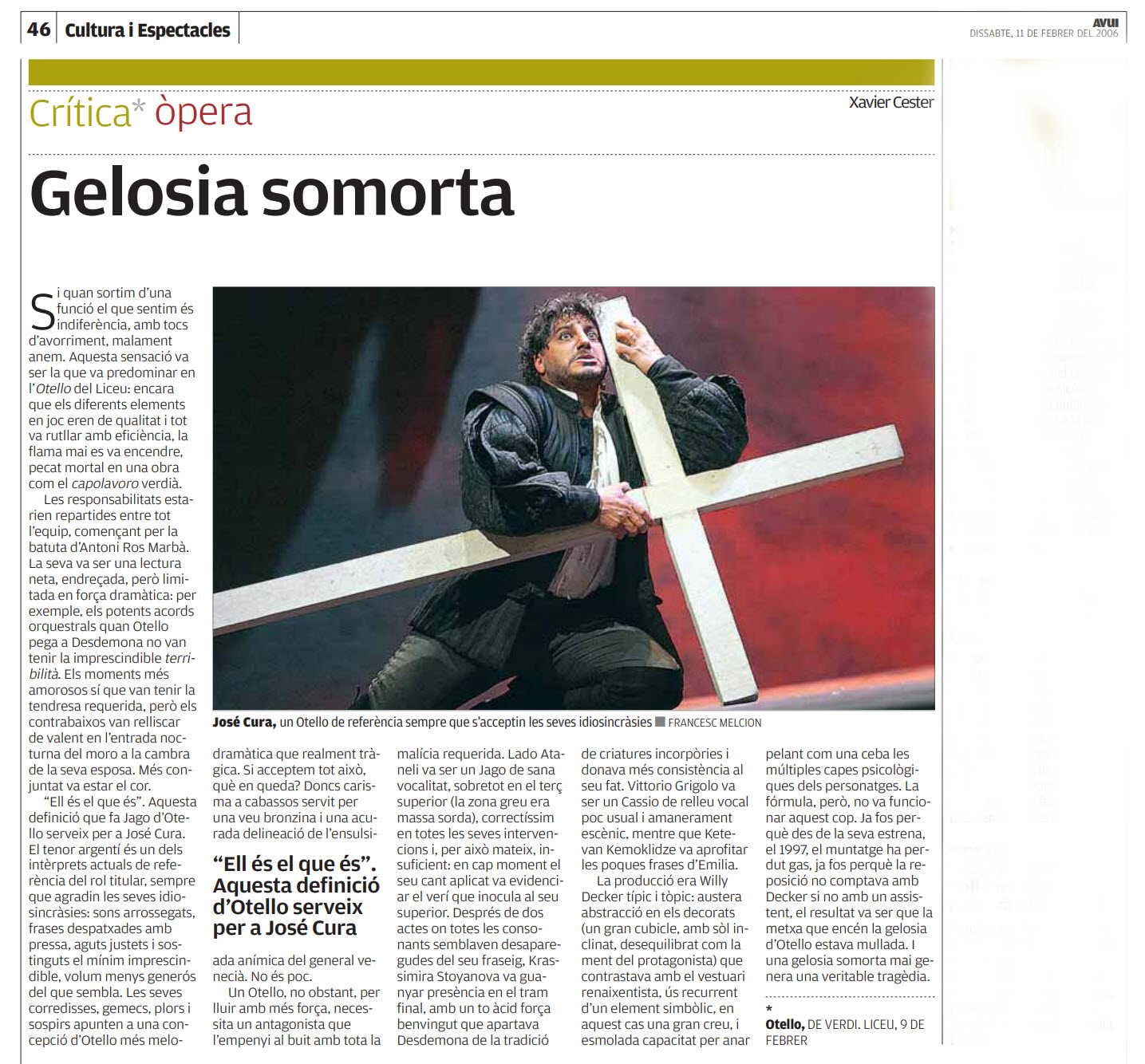
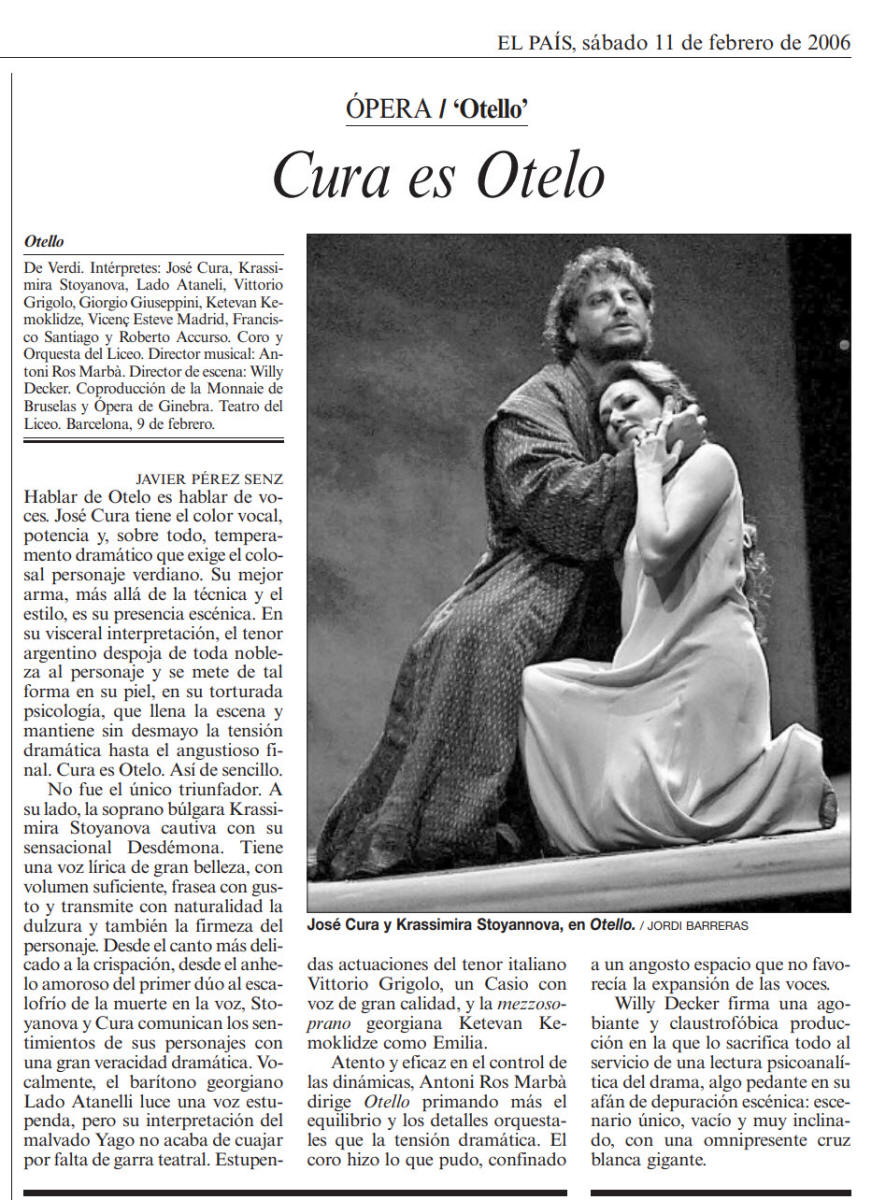 |
.jpg) |
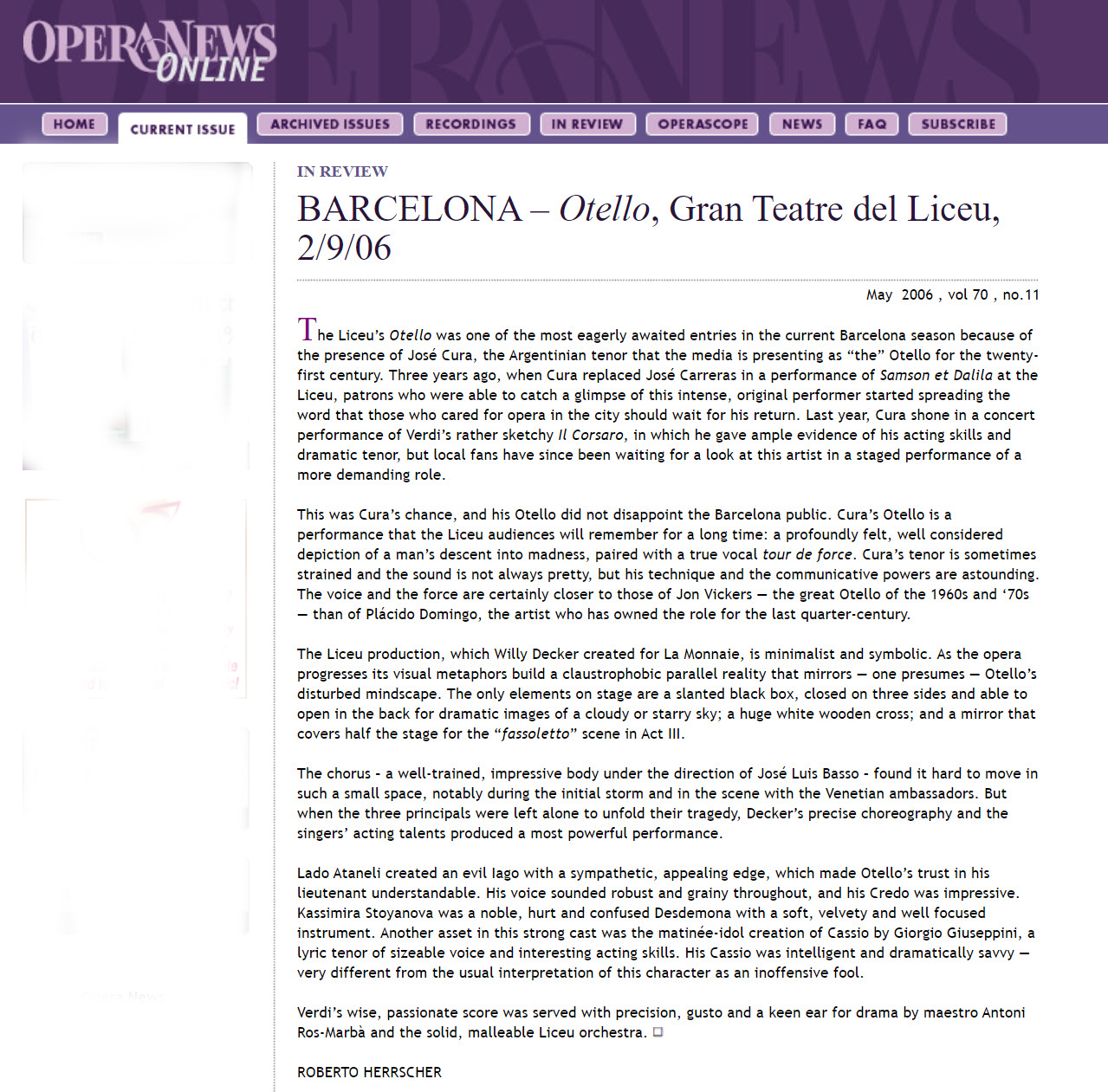
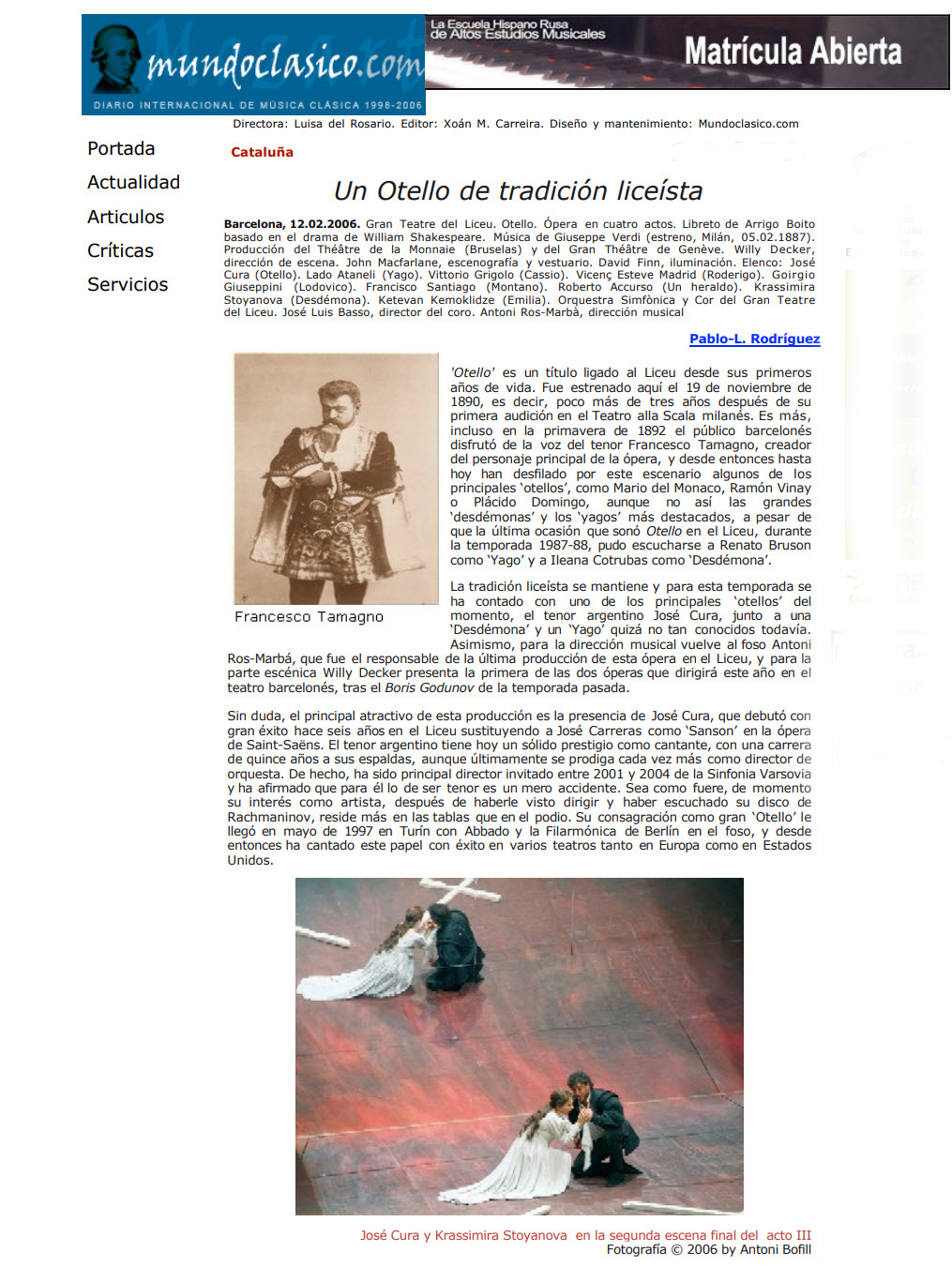
|
|
Otello - Mannheim / 2007
|
Otello, Mannheim, January 2007: “If the strongest weapon of a man is in fact his voice and he knows it well enough to use it with devastating effect, then he need only concentrate on the substance and tone of an intrigue, one already developed as a mental time bomb whose explosion usually ends in murder. José Cura offered a strongly projected Otello. His vocal strengths, which includes a darkly baritonal tenor and a strong inclination toward the dramatic subject, makes him an extraordinarily gifted actor, so much so that the final words of his last aria—the infinitely tender and equally hopeless “un altro baccio…” –before he breathes his last and sinks onto the lifeless body of Desdemona literally left not a single dry eye in the theater.” Mannheim Morgener, 30 January 2007
|
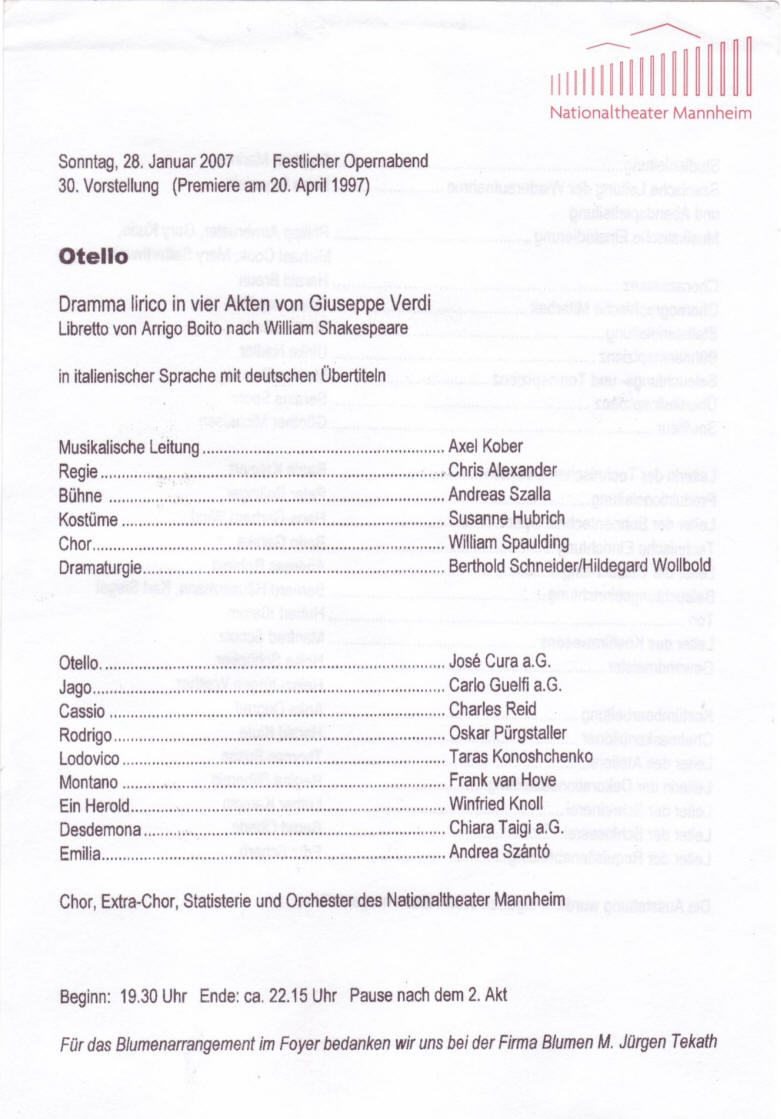
|
|
Otello - Szeged / 2008
|
|
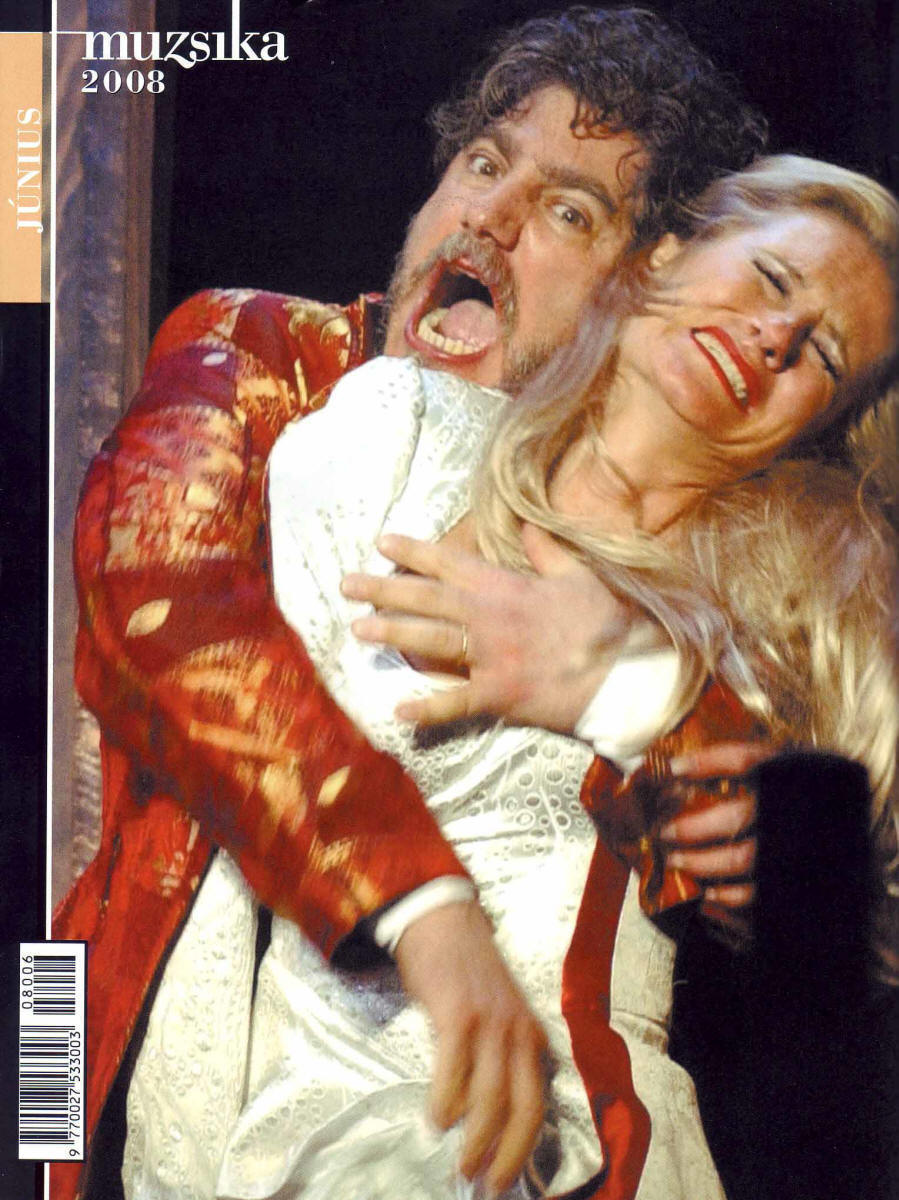 |
|
|
I knew from my kind informant that only a moderate success crowned the daring venture on the first night. But I both believed and disbelieved my informant after the course of the second evening. I believed him, as I wasn’t fascinated by Cura’s first appearance: “Esultate” sounded secure and powerfully, but rather incidentally. It did not strike as lightning strikes into the semi-darkness of the typical Italian operatic introduction. But I didn’t believe him, because on Otello’s return the desired conditions were already in place. In the love duet Cura even managed to swing the performance into the sphere of timelessness with his gentle-virile vocalism and a stage presence that was free of all the artificial poses and allures of a tenor. But in this action he was not alone. Szilvia Rálik’s voice doesn’t convey the ideal Desdemona; her voice is slightly sharp in the high notes and in the love duet fails to comply with the composer’s instruction, dolce; her middle and lower registers are colorless. There can be no doubt, however, about her musicality and receptivity. Close to Otello her tone begins to blossom, the intensity of her singing increases, her acting becomes more substantial. It was she who put the vocal crown to the finale of the third Act with her shining-saturated voice which easily cut through the whole ensemble. As it should be. In the absence of Otello, however, Rálik-Desdemona fades [and becomes] a conscientious performer in the fourth act, a Desdemona who did not have the power to summon her alter egos in the musical sphere: Barbara, Mary. Cura also had a catalysing effect on Zoltán Kelemen’s Iago. […] Like a hunter who is only excited when he has a capital stag in the scope of his gun, Iago’s wickedness can also only obtain its meaning and shape from a real Otello. The physicality of Otello’s personality – and thus the actor’s physique who plays it – contributes to a very great extent to the authenticity of Otello. The unbearable final scene of the third Act can be ruined not only for the Moor but for Iago if Otello is merely a tenor. Cura's physically "real" vibe took Zoltan Kelemen out of the almost amateurish stage reservation that had strangled his Luna [in Il Trovatore]. At the same time I was delighted to see that his previous helplessness on the stage did not turn into a ham grimacing with which many former famous Iagos used to frighten the more sensitive spectators in the Credo. I do not hesitate to praise Zoltán Kelemen’s solid, accurate Iago … And how was José Cura singing starting from where I left him some paragraphs above, from the beginning of the second Act? I am tempted to answer: I don’t know, I don’t remember, I don’t care. I am not sure whether José Cura sang or even he were on the stage at all. Because Otello himself was present. Fascinated, I was watching somebody going through a whirlpool of self-doubt. It was terrible: the man, the hero suddenly realizes that it may be that he is neither a man nor a hero. Doubt takes shape in the external form of jealousy. It is a mental illness like the imagined cancer which drives many to suicide. This led Otello into a similar situation too, but in an indirect way – on the altar of illness he sacrifices his anima, Desdemona first, then himself. During the evening, his theatrical presence was shockingly self-evident, practically obscuring Cura’s professionalism of the best sense of the word: I only realized this quality during the performance on the next day [cast with different singers]. It was only then that I was able to analyse how precisely the Argentinean followed the prescribed situations of the direction on the one hand and how much he added to it from his own – the experiences of other performances – on the other hand. I can say only one thing: he strangled Desdemona with his kiss! And of course, he sang outstandingly. He sang – he did not give in to the temptation lurking in Otello: to forget the music. Yet his singing sounded like speech, a spiritual manifestation. I think this very concretely and not in a figurative sense; Cura goes as far as he can but no further considering the rhythmic freedom of declamation, the quasi-prosaic thickness of the notes and the dissolution of the cultivated singing voice into speech sound. This exemplary interpretation was a holistic experience… Tamás Pál conducted the orchestra playing in heated form in the first night with tempi of grandseigneur and the deep understanding of the thing. The second performance showed faint signs of disintegration but I forgave him.
|
|
Press Conference
|
|
|
|
|
Around Town
|
|
|
|
|
Note: This is a machine-based translation. We offer it only a a general guide but it should not be considered definitive.
Walking and Snapping Photos in Szeged with José Cura Delmagyar R. Gábor Tóth 11 April 2008
Szeged - José Cura, the tenor who had a huge success on Wednesday night, continued to fight the role of Otello in his dream - yet he walked downtown Szeged with energetic steps. He was also interested in the acoustics of the hall of the town hall, the dome of the synagogue and the musician of Kárász Street. "Look, José, a little continental breakfast," said József Székhelyi, the outgoing director of the Szeged National Theater, offering a plate of chocolate at the Szeged town hall on Thursday morning. The world-famous tenor had a huge success on Wednesday night in the role of Otello at the Szeged National Theater. He sings again on Friday, but spent Thursday sightseeing. He rolled into Szeged Square at 12 noon in a black Audi A8. Together with Mayor László Botka, current theater director József Székhelyi and future theater director Sándor Gyüdi, he went to the mayor's office. “I was surprised by the key,” he told Botka, referring to the scaled-down copy of the city key he had received after the performance. "I have it now. I can always come back, anytime," he joked. “Wednesday night was fantastic. I was delighted by the audience’s reaction. Many people are surprised that I did not sing my first Hungarian opera role in Budapest, but this production would have been a great success there as well. There are no first- and second-class theaters, there is only theater, and I think that Szeged, through its theater, could soon be a very important point in the world,” the tenor said, looking at the possibility of further cooperation. "Otello doesn't need them, but Cura does," he commented cheerfully, explaining that he had to bring his glasses for the signing: he gave László Botka a DVD of his first performance in Hungary, which was released on Wednesday. He then looked around the hall as well, immediately inquiring about the acoustics of the room. “Just try it!” László Botka pointed to one of the microphones, but instead Cura sat in the mayor's chair. "It's too hot," he said with a laugh, then stood up. Accompanied by Botka, Gyüdi and Székhelyi, the world-famous tenor then went on a short sightseeing tour. "There's Cura! Come on, let's walk after him," an elderly woman on Kárász Street said. A red car stopped on the crosswalk, from which we only heard the female voice: "so handsome!" The star, walking in a black, long-sleeved top, black jeans and sunglasses, was followed by two girls taking photos. Andi and Nóri had read about the tenor in the newspaper and were curious about “both the man and the artist.” "He's a Latin macho," commented Andi, focusing her camera on Cura, who had his own camera ready: he photographed the reporters around him almost more often than they photographed him. It turns out the book compiled from his pictures will be released in September. After listening to the production of one of the street musicians, he walked energetically along Árpád Square, then in front of the Episcopal Palace, although we learned from his Hungarian manager, Roland Bokor that Cura had not slept well. "He continued to fight in his sleep," he said. “Here was my concert! I remember!” Cura exclaimed at the sight of the Cathedral Square. The bell rang here and then he listened to a music class. Throughout the walk, his companions kept telling him about the history of Szeged and Hungary. In the synagogue, he looked at the dome of the beautiful building, the door hiding the torah scrolls, and the memento of the Martyrs of the Holocaust. José Cura, who was called a "sweet, warm-hearted, ordinary guy" by Székhelyi, also received a gift here: a videotape showing the building. To say goodbye, he wrote in the guest book “thanks for the warm welcome in the house of God.” At the entrance, fans were waiting again: a woman had a large pile of CDs, adding, "I couldn't even bring them all." Signing After lunch at a Szeged restaurant - the menu was three courses, with steak - Cura met opera lovers in the theater. Fans equipped with cellphone and cameras were waiting for the world-famous tenor in the lobby, who signed for an hour. To "Annamarine," a woman read enthusiastically, then looked at the dashing signature, "José Cura," for a long time. Reception in honor of the tenor A reception was held Wednesday night after Otello in honor of the tenor. Mayor László Botka called the performance a beautiful, memorable theater evening in Szeged. Guests ate sushi, crab cocktail and red wine beef stew, among other things. The reception lasted until midnight. |
|
Rehearsal
|
|
|
|
|
Note: This is a machine-based translation. We offer it only a a general guide but it should not be considered definitive.
Basic Interests Fidelio Jászay Tamás 10 April 2008
[Excerpt] Ferenc Anger, who studied directing in Venice, has made his opera director debut in Szeged. More attention than usual is being paid to Otello, since the lead role is sung twice by José Cura. Question: Did you direct Cura in the first rehearsal, or did he direct himself? Answer: It is difficult to answer this, but it is important to know that after José Cura arrived in Szeged on Sunday evening, he immediately watched the performance, and then at the rehearsal the next day, every walk and every movement was already in his head. With little exaggeration, I could say I had almost nothing to do with the five-hour rehearsal on Monday morning and then the three-hour rehearsal in the evening. Q: How did he take to your interpretation? A: He agreed with the concept in general. In our performance, Otello is not an idealized hero who overcomes all obstacles for love. On the contrary, he is a fallen man who has reached his position after a series of betrayals. Although the Venetians form a closed community, they still welcomed this talented stranger, Otello; however, the city employs him almost as a farm animal. He knows his position is only temporary. He wants to insure he can leave with the girl, Desdemona… […] Q: How did Cura and you get together? A: When Cura sang in Szeged in 2001, he said he would like to perform on the Hungarian opera stage, which became the starting point of a series of negotiations over several years. And when I was admitted to the University of Venice - where, by the way, Cura was teaching as a lecturer [not verified] - I started negotiating with Szeged to make my debut here. And a year ago, the two threads intertwined. Q: How did the protagonist’s character affect your work? A: I asked myself this question many times and I’ve come to the conclusion that I don’t know. On the one hand, there can be no professional work in which everything is shaped to single name, but on the other hand, I didn’t have time to think about it, as there was the three-hour piece that had to be staged. It’s a great honor for Cura to perform, but if he hadn't sung Otello, the performance would still be the same.
|
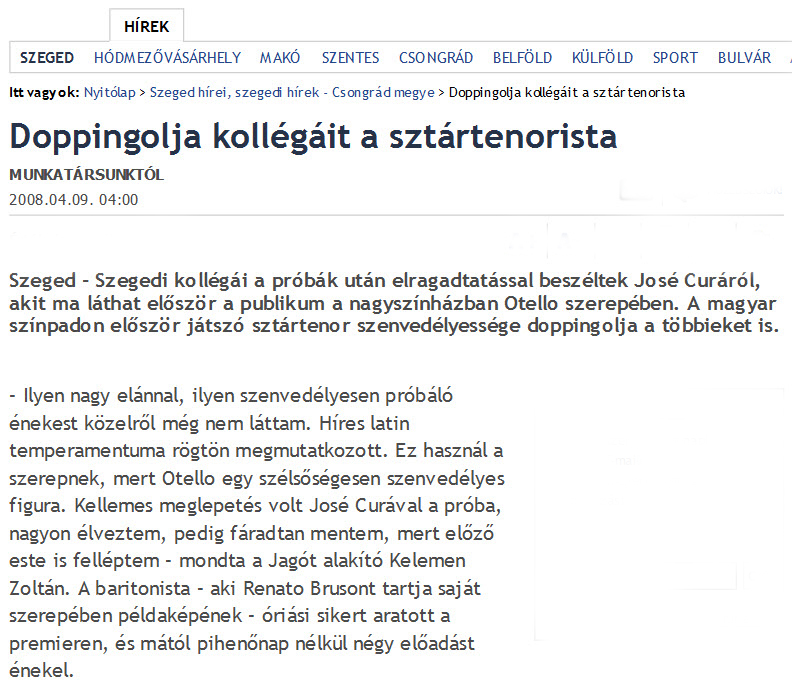
|
|
|
Performance
|
|
|
|
|
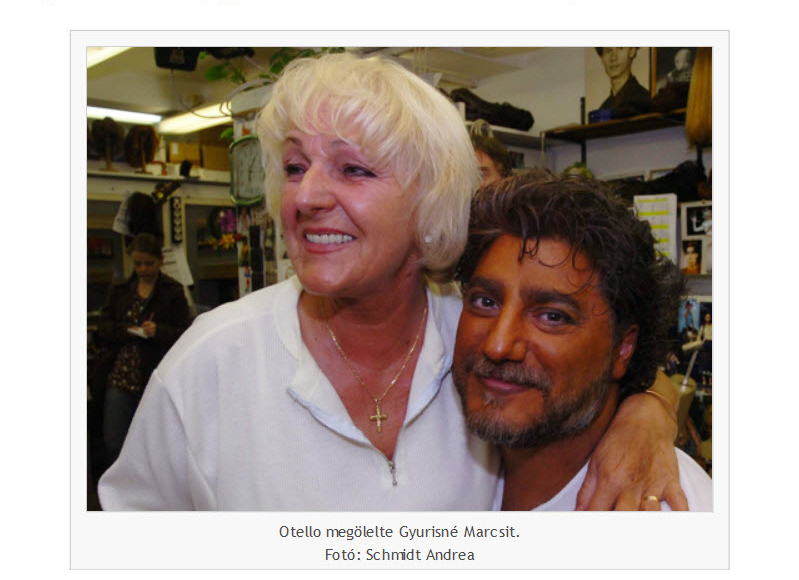
|
|
Note: This is a machine-based translation. We offer it only a a general guide but it should not be considered definitive.
José Cura Blasted his audience to the Skies Delmagyar Gonda Zsuzsanna 10 April 2008
Szeged - It was a huge success on Wednesday with José Cura in the title role of Otello at the Szeged National Theater. The audience stood up and applauded for long minutes at the end of the Verdi opera, mostly celebrating the Argentinean world star. Delmagyar was already in the theater an hour and a half before the performance as we followed behind the scenes as the tenor transformed into Otello. Cura walked from the Novotel Hotel to the National Theater at around 5:00 on Wednesday. “The weather is great!” exclaimed the world star. He was in good spirits before his first operatic appearance in Hungary. At 5:15 p.m., Marcsi Gyurisné, the theatre's make-up artist, began her work. The tenor had not wanted a makeup rehearsal prior to the performance, so this was the first time he turned into Otello. "You are the master!" Cura offered the specialist, who also took into account the fact that the auditorium in the Szeged theater is close to the stage, so the sharp contours had no place here. “He's a sweet guy, and he's very precise. Everyone wants to prove themselves tonight and so does he,” Marcsi said of the world star, who in the meantime asked the photographers who surprised him if they were paparazzi. He tolerated the camera flashes for a few minutes, then asked for peace of mind. At that the photojournalists ask for the last photos of a smiling Moorish governor of the island of Cyprus. “I'm Otello, and he's not smiling!” The singer replied, looking into the cameras with a wild look worthy of his role, then retreating to his dressing room, where tea - English and mint - was waiting, as well as fruit. That's all Cura asked for. “I’ve worked with several big stars before, and the really big ones never ask for anything extra. It’s usually the little ones who throw tantrums,” said Cura's Hungarian manager, Rokand Bokor. The tenor, meanwhile, toured the stage, and we wondered if the forty-five-year-old artist, who used to be a body builder in Argentina, was exercising. “When can I attack him with a handshake?” Asked Sándor Gyüdi, the future director of the theater, asked the manager. He stopped by the tenor's dressing room for a moment, joined by Mayor Laszlo Botka, who had just arrived. There was no shortage of potentates, by the way: Domingo Zullen, Argentina's ambassador to Hungary, watched the opera, and there were spectators from the Embassy in Vienna. We were still waiting backstage when Iago - Zoltán Kelemen - and the choir members appeared. Shortly before the seven o’clock start, Cura agreed to be photographed from the stage by some photojournalist, an unusual leniency. He walked in casually with the choir members, kissed his make-up artist, and at 7:00 PM, the curtain rose. The performance was a huge success among the audience in Szeged. The audience stood up and applauded for a long time, celebrating the Argentine world star who received a huge basket of flowers from the theater. As the applause subsided, stage director László Botka and József Székhelyi gave a gift to the world-famous artist on stage, the former handing over the key to the city and the latter the book of Béla Dusa Szeged to the opera singer. After the performance, José Cura was further celebrated with an elegant reception by the theater.
|
|
|
Kultura provided two reviews -- a longer, more inclusive one in Hungarian and a shorter (summary) in English. Both provided lots of nice photos from the production, so both are being presented.
|
|
Curtain Call
|
|
Miscelaneous
|
|
Signing
|
Otello - Hannover / 2008
|
|
|
|
Otello - Tenerife / 2008
|
|
|
|
|
|
|
|
|
CA: Singing today is interdisciplinary, it has to do with many things. How is the day of the performance, does it start with a coffee or tea? José Cura: [Laughs] I start with what they give me, I don't have many problems, unless I'm sick or I feel bad, or I'm especially dragging a huge fatigue from the previous performance. I try to speak as little as possible because, of course, during the performance, especially in an opera like Otello, the vocal organ is used a lot, and sometimes it is used a lot in extremely tense situations, so the more rested you are, the better it is. But as we say in my country, for a bad singer even a mustache bothers you. CA: Apart from the passion that we know accompanies you when you take the baton, how do you currently see the attitude of stage directors towards musical directors in opera? José Cura: In all performance there is everything, but everything. There are phenomenal orchestras that have an intense dramatic and musical understanding, and there are improvisers, which would be the least serious, because an improviser can even be positively contaminated. Then there is the stupid one, the one who doesn't understand anything, the one who pretends to understand and who generally gets annoys and ends up getting upset with everyone, screaming in rehearsals, going alone to eat; it is immediately noticeable. The thing about making music, making opera, making art in general, is that if you do it with the right symphony the experience is magnificent, but if you do it with the wrong symphony, the experience is deeply devastating, it ends up just as the word says. Fortunately, at the level in which I move, due to a situation of coincidences and also of delicacy, people who are not prepared are not usually in the mix, people who are on the same wavelength, as the kids say nowadays, are usually put together. CA: Is anything valid to continue attracting audiences to the opera, which is still in good health, despite the global village, the media and the internet? Will the daring and sometimes unreasonable direction of the stage and globalization take its toll? José Cura: No, look, anything goes, as long as it doesn't get mess up. I usually give an example that I think is very clear. If you have no other wine, and you want to drink wine, a glass of wine from a carton can be satisfying, as long as the person who serves you the tetra-brick is not telling you that he is serving you a Ribera del Duero '97. He'd be lying to you. He doesn't say to you: look, this is all there is; have fun considering its worth. Instead he is telling you this is all there is and it's the best. He’s deceiving you. In art it is the same thing. Everyone has the right to sing, to make music, to take photographs. Photography also allows us a very great elasticity, because, of course, in the past whoever didn't know how to take photos didn't shoot film. Today, if you don’t know how to take photos you take a thousand until one finally comes out, and if it doesn’t come out, you end up correcting it on the computer and then you go around telling everyone you are a photographer. Take photos, have fun and say: I like to take photos, this enriches my being and my person, but don’t take work away from the professionals who have been doing this for a lifetime. CA: Do you feel closer to the biblical Samson or the Shakespearean Otello? José Cura: As a person, I'm close to neither of them. They are two difficult characters, like so many, unfortunately; they are extremely negative characters. In other words, as a person I don't identify with any of them. But musically speaking, they are great characters. As a singer, I feel very comfortable singing both of them. However, Otello is immensely more difficult. CA: This Otello being a production by the Saint Gallen Theater, we would have loved to have seen the Canarian soprano Yolanda Auyanet on stage with you. José Cura: As I arrived with a few days to rehearse, I suggested two or three names with which I am used to singing Otello. CA: Do you return to Real de Madrid or will you stay in the peripheries for a while? José Cura: We have a temporary project, but, of course, very long-term projects are scheduled for 2011, 2012. So I, before asking myself if I'm coming back, I’ll have to see if I'll still be in Madrid by then, because as we know, all the sessions, references, artistic manifestations go according to politics, so only those who understand politics know that. CA: How was the excursion on Saturday? Could you see the snow on Mount Teide? José Cura: On Saturday we went for a walk and I very innocently asked in La Laguna, hey, where is La Laguna? And a man told me: well, there was a lagoon here once, but not now. We decided to take a walk and see the center which, by the way, is very nice. And we also went into the mountains and it was pouring rain. We went into a tavern to eat, winter has come early. But the weather is spectacular. It is a delight to go out with 20ºC. I feel very good.
|
||
|
|
Otello - Berlin - 2010/2013
|
Reviews
|
|
|
|
José Cura sings at the Deutsche Oper
BZ Martina Hafner 28 May 2010
In a BZ interview, Tenor José Cura discusses the ups and downs of his career and the World Cup.
He was considered the most erotic tenor of the opera, won critical acclaim and then critical snubbed. But the Argentine José Cura (47) has survived it all. Tomorrow he sings Verdi's Otello at the Deutsche Oper - the man who kills his wife Desdemona out of jealousy.
Mr. Cura, do you ever enjoy singing a killer?
José Cura: Otello is also a victim who he kills himself in the end. But it’s true his job is to kill. He's a mercenary.
Do you like the character of Otello?
José Cura: Not at all, but I like to sing into him. He has a terrible soul, negative and self-destructive. He sees betrayal everywhere because he himself is a traitor. He sees murderers everywhere because he is one himself. A very modern theme, by the way.
In what way?
José Cura: Otello was a Muslim who converted to Christianity so that he would be accepted by society. And then he gets hired to exterminate Muslims. It's almost prophetic what Verdi has laid out there in terms of conflict. Think of the wars of today.
What will you look like in the production?
José Cura: I will be in black makeup. I understand, of course, why you ask that, because in Germany anything is possible on stage!
Andreas Kriegenburg's staging is very modern - do you feel comfortable with it?
José Cura: I don't completely agree with him. But as a professional, I follow his concept. And it is internally consistent. That's a lot to ask for today.
You were the tenor of the century, then the negative reviews started. Where do you stand today?
José Cura: At that time I was with a record company, where there is a tenor of the century every day. Many disappear again. But I'm still here.
You were considered the testosterone bomb of opera.
José Cura: On stage. In private I've been with the same woman for over 30 years.
As an Argentinean, what do you think about the World Cup - will your country win?
José Cura: The Spaniards play the most beautiful soccer. But they can be beaten by more aggressive teams. It's like show business.
How so?
José Cura: When I started, it was important to be able to do a lot, to know a lot. Today it's enough to win a TV competition - and you're the best singer on the planet!
Do you do anything to stay physically fit?
José Cura: I used to, about 20 kilos ago. But I have so much to do, I conduct, I direct, I write books. My wife says those are all excuses for not exercising. She's right, I plead guilty!
|
|
|
|
|
Otello - Santander - 2011
|
|
|
Otello with José Cura and Barbara Frittoli open the FIS El Diario Montañes 31 July 2011 John C. Flores-Gispert
[Excerpt] The couple is an expert in giving life to the Moor of Venice and his wife, roles they have played together many times since 1997 Tenor José Cura faces the opening of the Santander International Festival (FIS) on Monday like a bullfighter facing a bull. As he said yesterday "opera is very similar to bullfighting, because we perform the roles without a net, as in the arena." When the spectator "is waiting for the tenor to face the wall when the high note comes" it is "the same" as when the bullfighting crowd waits to see what happens to the bullfighter when he "makes a veronica or is going to kill the bull." On Monday he gives life to Otello, the Moor of Venice. The tenor from Argentina and Spanish nationality doesn’t know how many times he has played Otello, but each times he does it with the same sense of responsibility as the first time; this time he opens the sixtieth edition of this festival which he described as a model, "that has very few rivals in the world, which is morally unimpeachable and of high artistic and intellectual quality." Cura, with soprano Barbara Frittoli, will play Otello and Desdemona, roles they have performed together in theaters around the world on many occasions since 1997 so their harmony is complete: "We can wrap ourselves in a particular halo, because we know each other very well, that just by looking at each other we understand the other," even though this time it is presented in concert version, without scenery, costumes or stage movement. Along with Cura and Frittoli will be in the role of Iago the Georgian baritone Lado Ataneli, who has come to replace Vladimir Stoyanov due to illness. The Argentinean conductor Mario de Rose will be in charge of the performance. "There is no better Otello than this one and no better Desdemona than the one Barbara will perform," said José Luis Ocejo yesterday, at the presentation of the first show of the 2011 festival. Maestro De Rose agrees in his praise: "This is a great team. No conductor could have better interpreters than these two." For Cura the value of opera "cannot die, it is up to us to keep it as bright as possible" and he maintains that it is the responsibility of artists and cultural managers to ensure opera does not become "a museum with sculptures full of dust," because both are their "guardians." Otello, says Cura, is "much more than a story of jealousy over a little handkerchief" because behind Shakespeare's play there is "an enormous denunciation of falsehood, of the use of people, of racism that today, after 600 years, is still current." In his opinion, the third act of this opera is "nothing more than the masterly musical development" of an act of gender violence. In addition, he believes that the work has "a different reading" since September 11, 2011 because it also speaks of fundamentalism, of those who defend their ideas by violence "whether they wear a turban or a tie".
|
|
\
|
|
|
|
Otello - Zurich - 2011
|
|
|
|
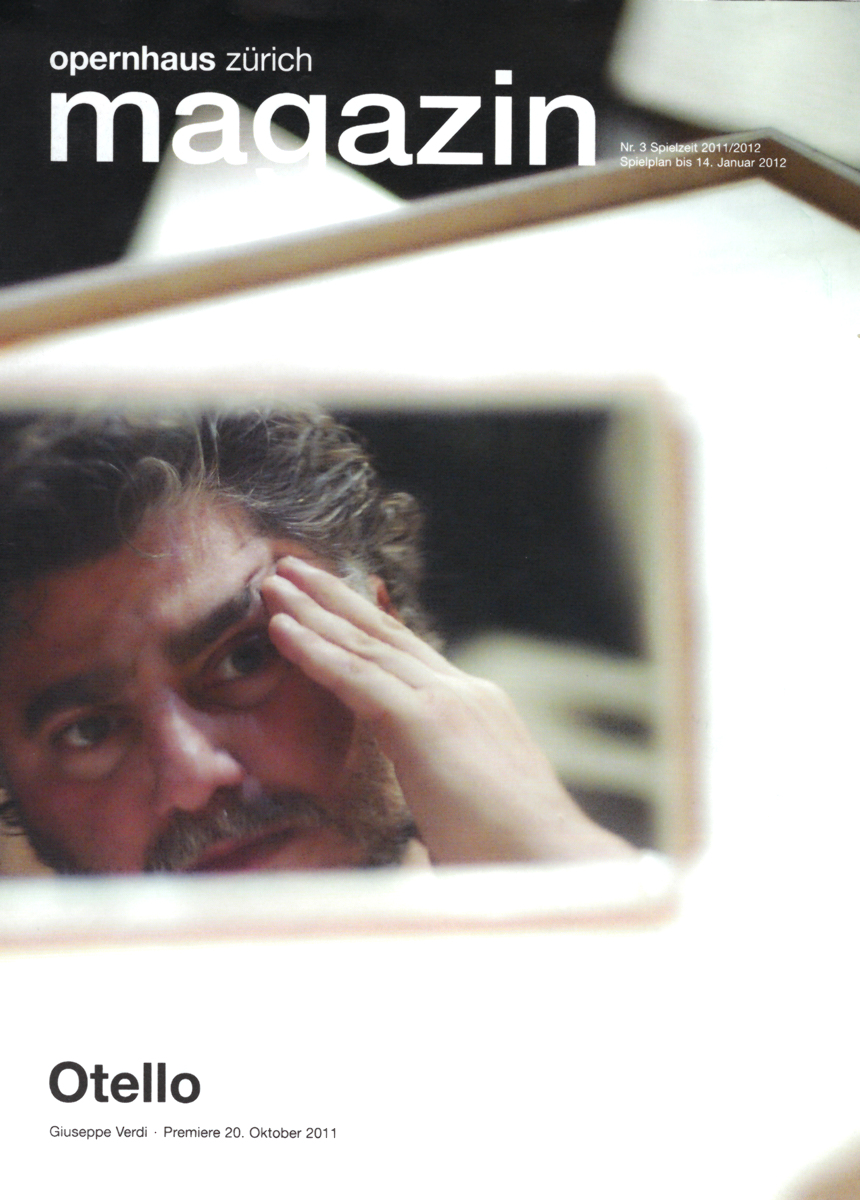
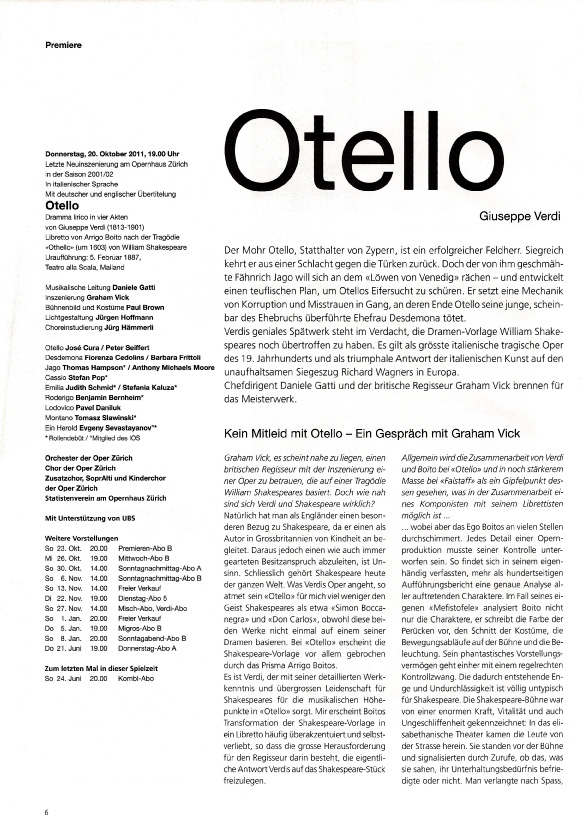 |
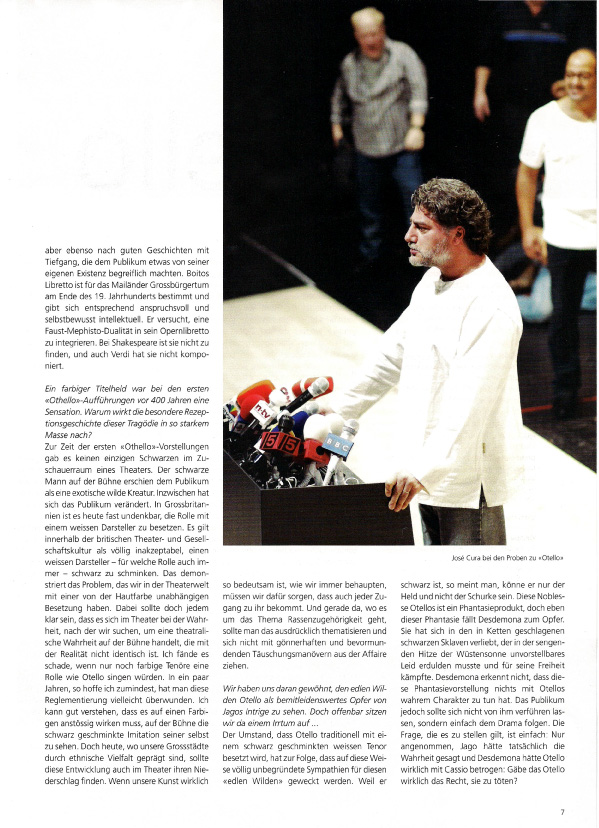 |
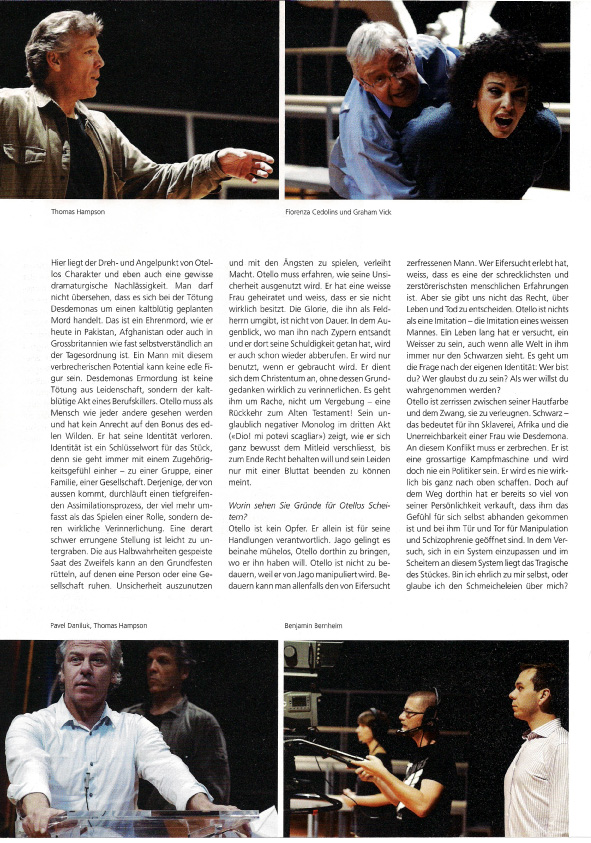 |
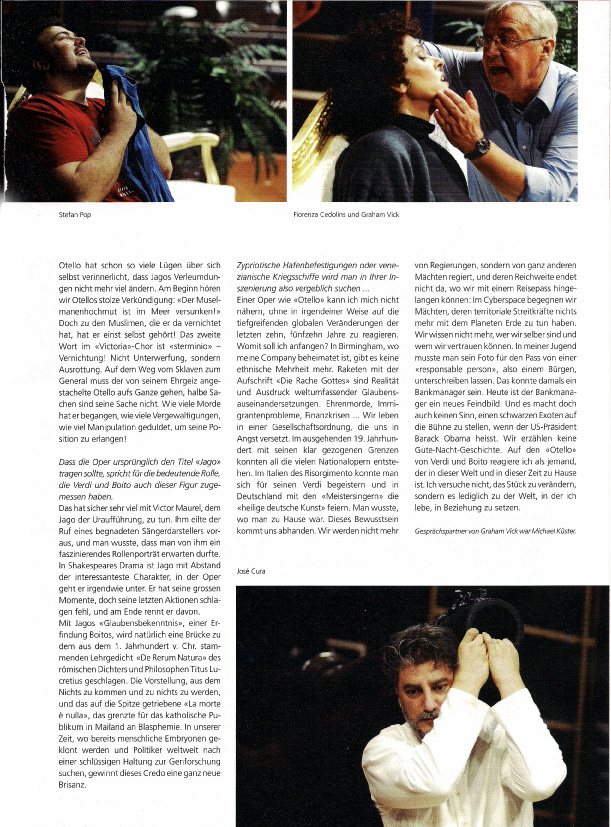 |
|
|
|
|
Otello - Luxembourg - 2012
|
|
Otello - Bratislava - 2012
|
World-renowned Argentine tenor José Cura in Bratislava
Opera Slovokia
Ľudovít Vongrej The world-renowned Argentine tenor José Cura has traveled to Bratislava to perform as the main character in the Slovak National Theater Opera’s production of Giuseppe Verdi’s Otello. The past few days have been spent in rehearsal for the performance, which will take place on 11 February and 2 March. Along with Maestro Cura on 11 Feb will be Jago: Dalibor Jenis; Cassio: Oto Klein; Roderigo: Ivan Ožvát; Lodovico: Martin Malachovský; Montano: Mikuláš Doboš; Un Araldo: Daniel Hlásny; Desdemona: Adriana Kohútková; Emilia: Denisa Šlepkovská. The conducter is Ondrej Lenárd. The tenor was available to answer questions at a press conference. He said that a man does not become an artist instantly. At the beginning of his career he has only one talent. A man becomes an artist over the course of his lifetime. He was asked about problems with the current makerting of opera productins in the world. Cura spoke of the need for a strong, high quality culture and available art that is needed not only for leisure and entertainment but is also necessary for the higher goals of transmitting tradition and enducation nations. He said the current trend to introduce new, modern production is not a problem if it has been intelligently thought out and the concept can be logically explained. José Cura has such standing in the opera world that he can actually chose where he works. The Maestro said he came to Slovakia to work in a professional theater and has enjoyed the collaboration. The artist also spoke about the character of Otello and breifly compared Otello and Nabucco, two works by Verdi. According to Cura, Verdi was a composer with talent at the time he wrote Nabucco but by the time he wrote his next to last opera, Otello, he had become an artist. “I have sung Otello for fifteen years. I have not counted all of the performances, but it must be around two hundred. For those two hundred performances, I have worked in about twenty different productions. I have worked with excellent conductors and directors, but also with very poor conductors and directors, and I have learned a lot from both. From the first group, I learned what the opera should be like and from the others I learned what it should not be. When I started to sing Otello, I had all black hair and I had to paint it white so I would look older and anow I have to color them black so I do not look too old. What seems like a joke is very serious because it means that for 15 years I have been a young man who has been trying to imagine how it feels to be an older man, and now I that older man who knows how it feels. This is, of course, reflected in the interpretation. I have seen the DVD performance of Otello from the Slovak National Theater. Last August I did the opera Pagliacci in Cesky Krumlov and Director Průdek told me about his ideas of staging in the SND. The theater asked me to sing Otello at the premiere but I had a performance scheduled somewhere else. Now I am here, so I will sing Otello. At the end of the press conference, the theater management informed us that José Cura will beh the exclusive guest at Prince Orlofsky’s ball in the presentation of Die Fledermaus, the comic operetta by Johann Strauss II, on 9 February. Upon his arrival on the opera stage Cura received great applause and not only by those who knew about it. José Cura treated the Bratislava audience to the aria Nessun dorma from Giacomo Puccini’s opera, Turandot.
|
|
|
|
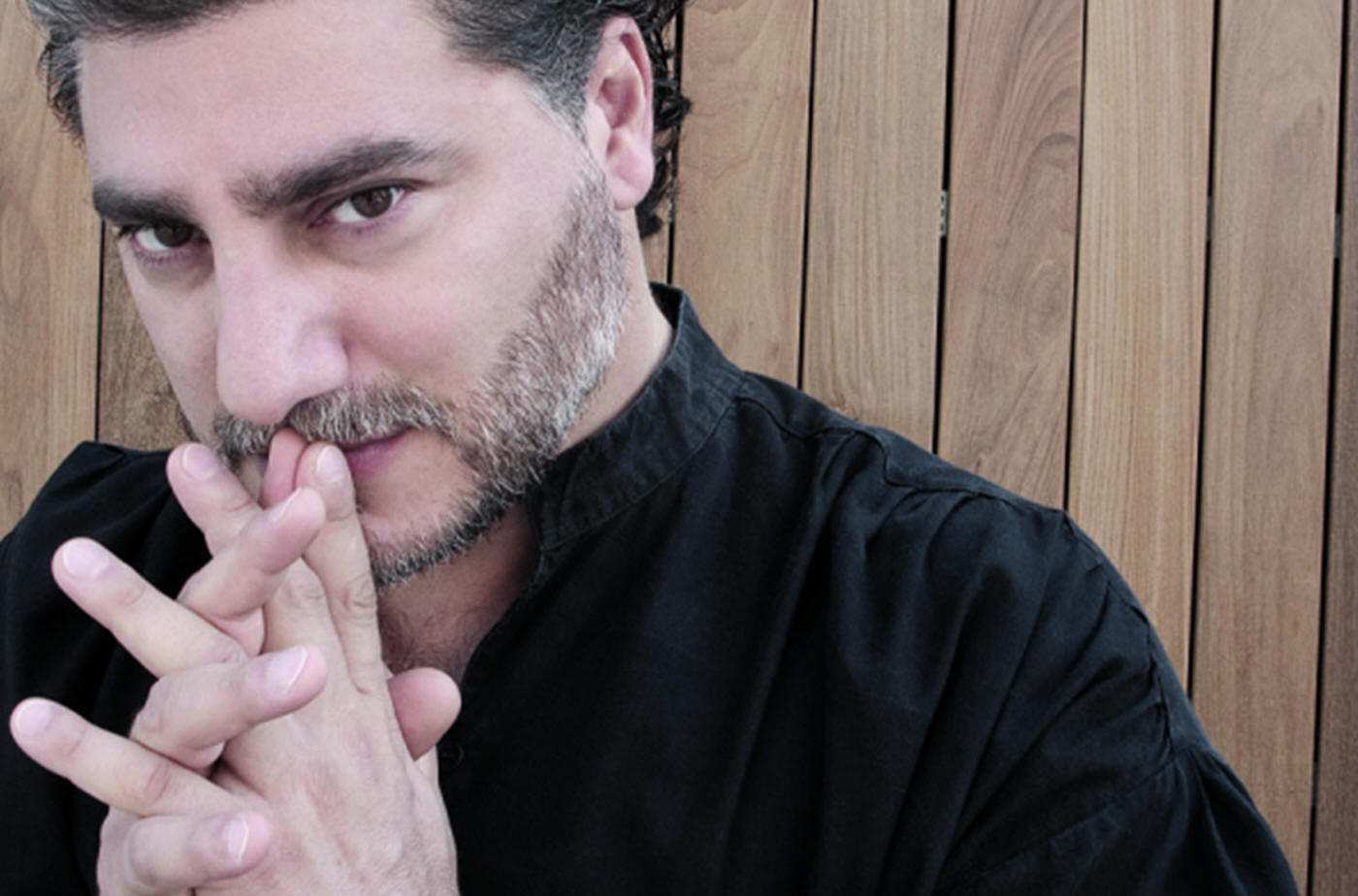
|
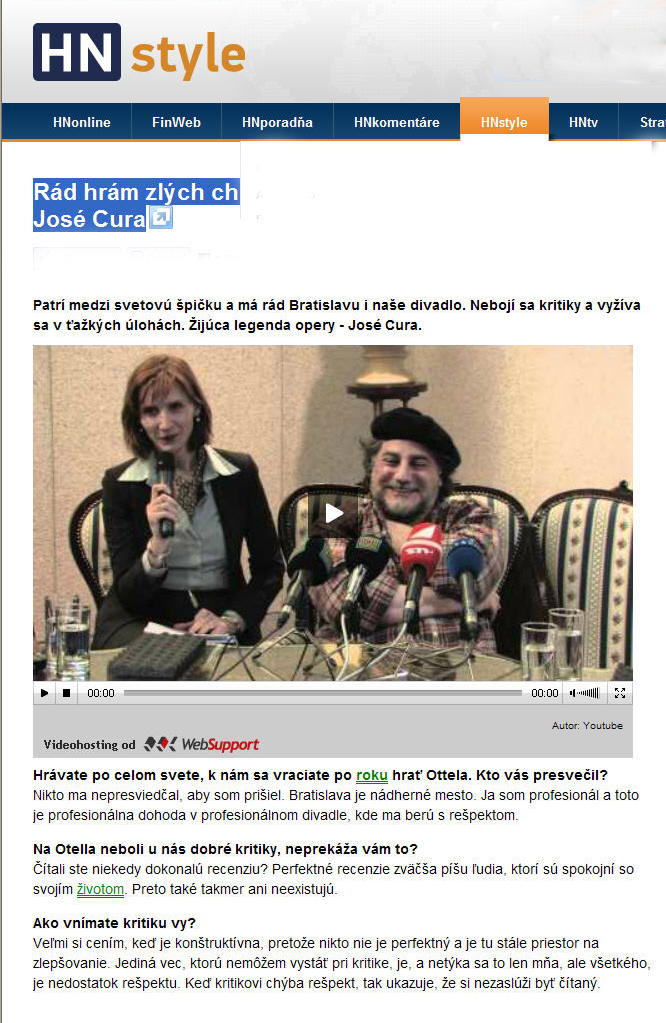 |
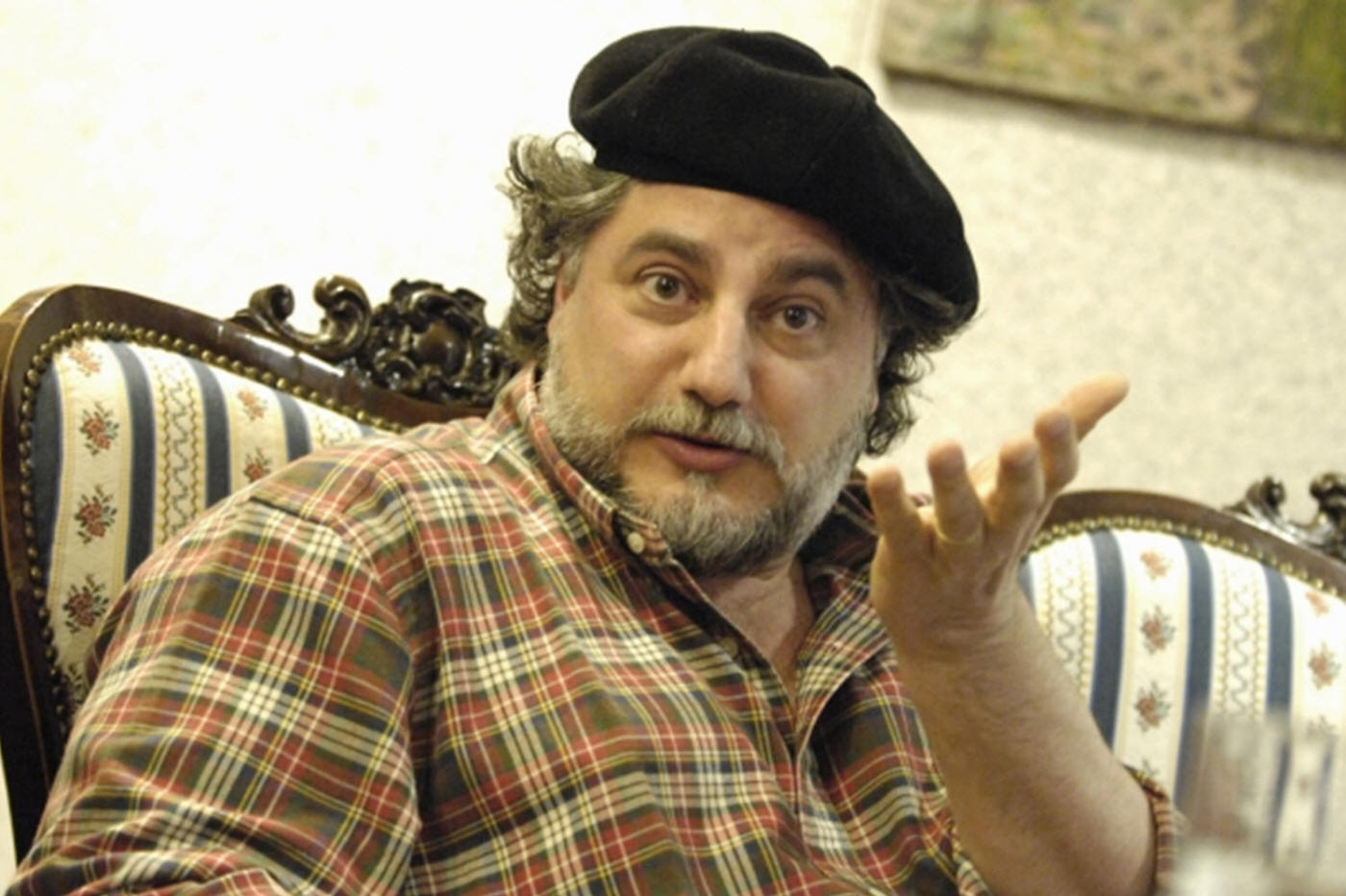
|
|
 |
|
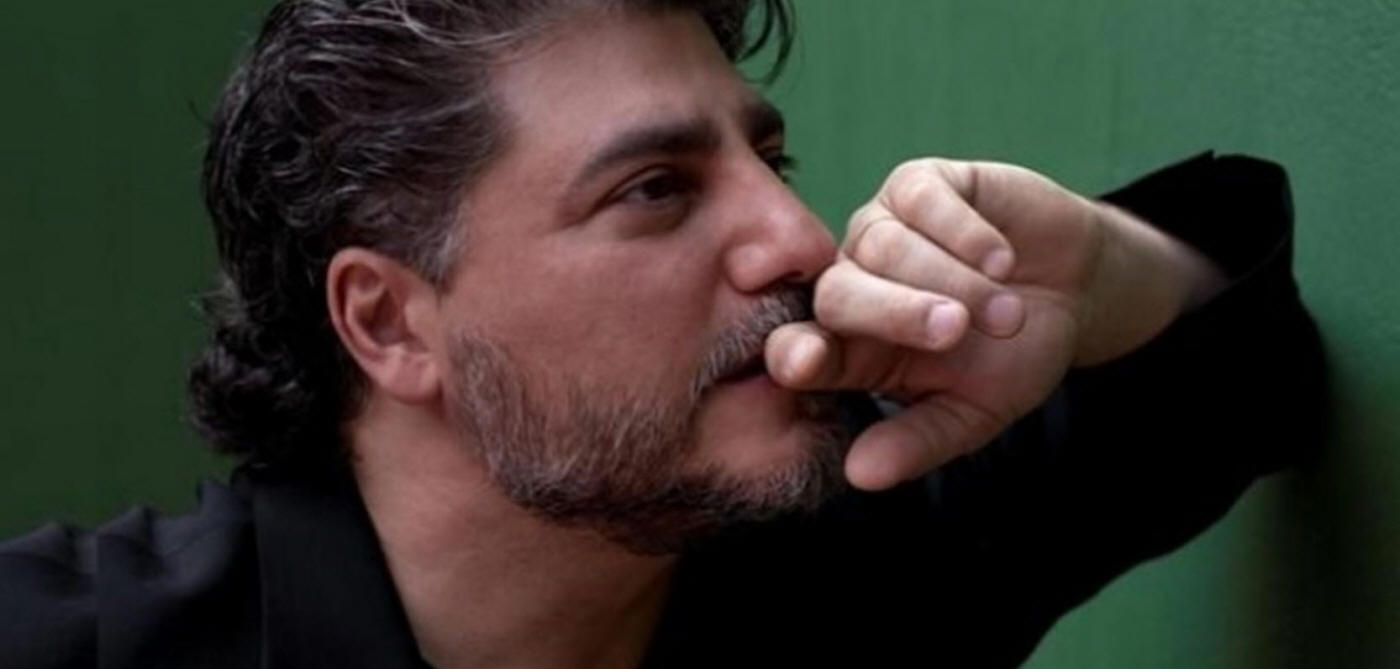
|
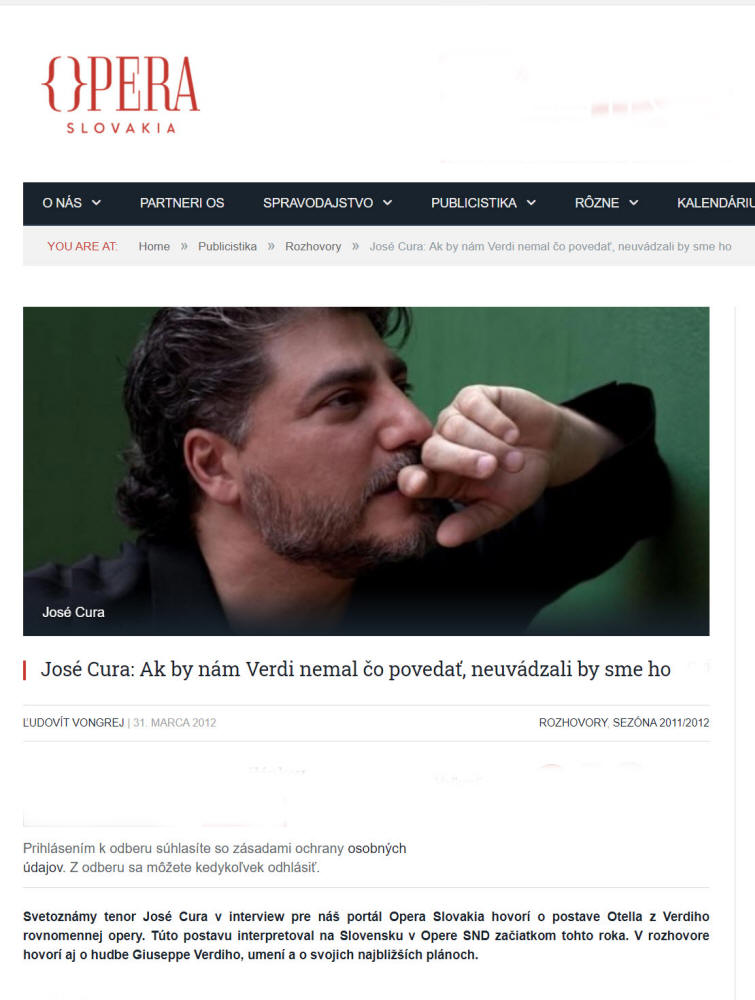 |
|
|
||
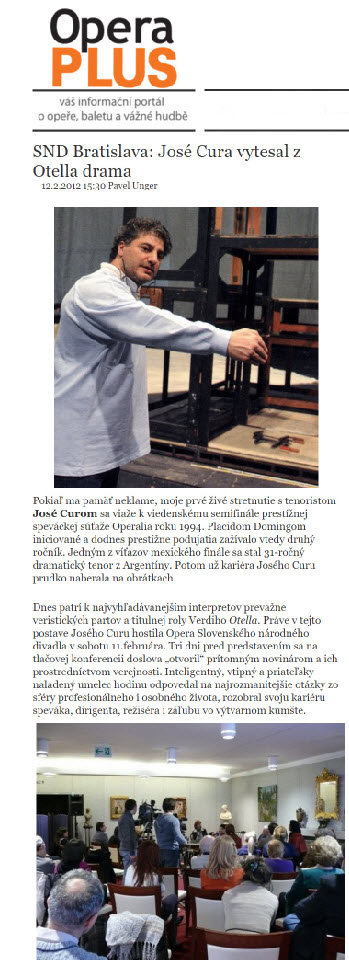 |
|
|
|
And how was his Otello? In a word, riveting. He poured life, drama, emotion into a rather lackluster production in which none of the three previous performers of the title role had managed to fulfill the complexities. The first two acts where filled with a surfeit of tense moments, when the ideas about the deployed tempos between Cura and conductor Ondrej Lenárd vastly differed. Even in the opening Esultate! the tenor was incomparably faster than the beat Lenárd put down. The important thing was, however, that from the very first entrance onto stage we see a warrior, a commander hardened by both sea and storms. He had the authority to be able to intervene decisively in the current conflict in Cyprus but he was also a man with all of a man’s human frailties. In the first duet with Desdemona, Gia nella notte densa, the voice changes from powerful, bronze-colored and heavy to one whose tone, not only in its colour and dynamics but above all in its emotional undertones, expresses the joy of meeting the woman he loves. Even with strict compliance with the staging of director Průdek, the singer ends the duet lying on his back. The quartet in the 2nd act got a special charge. Otello’s part in this moment is not to dominate; it was conceived as an inner mental reflection, as a struggle with conflicting ideas about Desdemona's infidelity. With extreme sensitivity to nuances he reveals how his relationship with Iago is being shaped and though he still hesitates to believe the intrigue, he has failed to banish the worm of doubt. Cura expressed these motives for the proceedings in an absolute interplay of vocal and acting resources. Again, he may have broken out of the established tempos at times ("recitative" sections are treated very loosely, almost colloquially, as if they were "recco recitatives"), but it was an effective move in favour of sharpening the atmosphere of the moment. On the other hand, José Cura is so prudent and experienced that he knows where to cut from the held pitch, where to open up and develop the phrase, so that the effect is unmistakable. For the first time in Lennard's conducting, Ora e per sempre addio was sung in cabaletto tempo, with tremendous expressive urgency, sung with a steely firmness and luster. If the tempo disagreement between the protagonist and the conductor came often in the first half of the evening, the partnership between the soloists avoided collision. Cura was extremely empathetic to Adriane Kohútková (Desdemona) and seemed to relish the mutual dialogues with Iago. It's hard to imagine a more riveting Act 2 finale of Si, per ciel marmoreo giuro! than with Cura and Jenis, although timbre-wise the two voices weren't all that different. A huge variety of expressive nuances were revealed in the third act. With outbursts of anger, expressions of mental chaos and self-doubt, Cura provided starkly dynamic contrasts and colors. At times he was a predator, demolishing everything he could get his hands on. The monologue Dio! I potevi scagliar began as a quiet reflection but gradually evolved in expression until it culminated in the arrival of Iago in an admittedly loosely held but luminous ‘Cielo! O Gioia.’ He sang with great conviction the scene with the Venetian message, his own mental breakdown, and only clumsy direction prevented the end of the third act (Iago's triumphant "Ecco il Leone") from making an even more chilling impression. In the last act, he brought his charismatic speech to a close with an outright ritual farewell to Desdemona. He gave in to Prudek's suggestion of unwrapping the scarf from his head and, with faith firm and voice calm, he knew what he had to do and ended the life of his beloved wife. Nium me tema, the closing monologue, was an intimate testimony of the sorrows of a man who believed he succumbed to a manipulator. With great license in his choice of rhythm and tempos but also with huge and credible psychological immersion, José Cura had completed his first Otello in Bratislava. The audience welcomed Cura with spontaneous applause (for Esultate!) and bid him farewell with a prolonged ovation. It was definitely a superior evening at the Opera Theater. … May we experience similar evenings as often as possible.
|
||
|
|
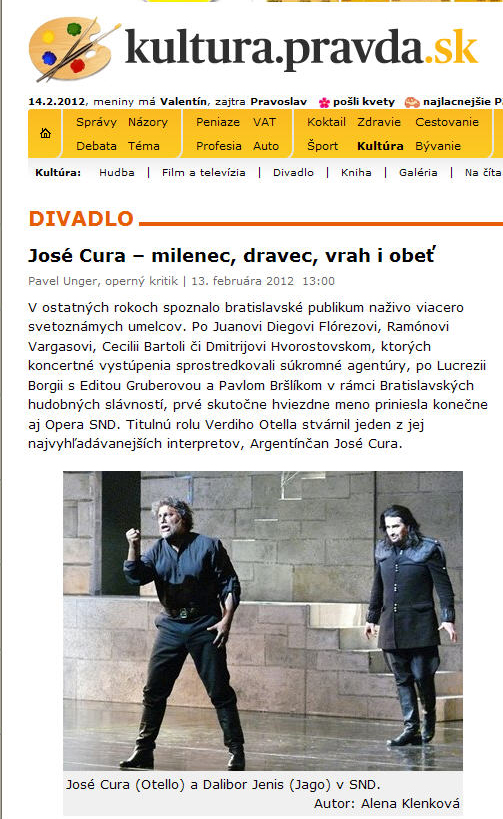 |
|
|
|
||||||||||||||||||||||||
 |
|
|
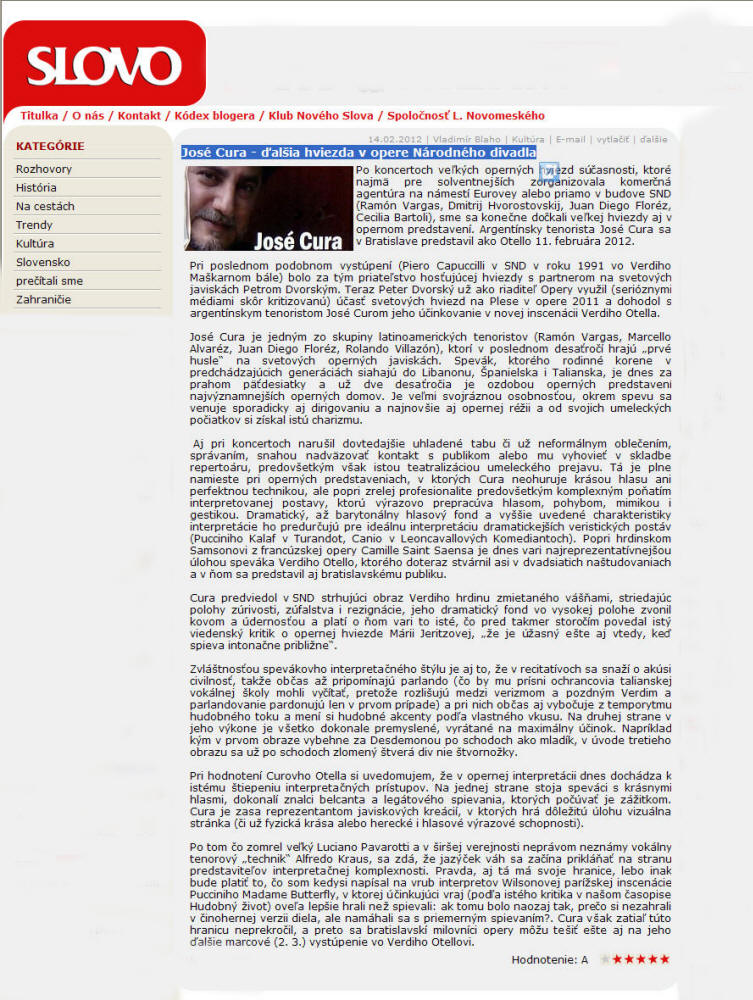 |
|
|
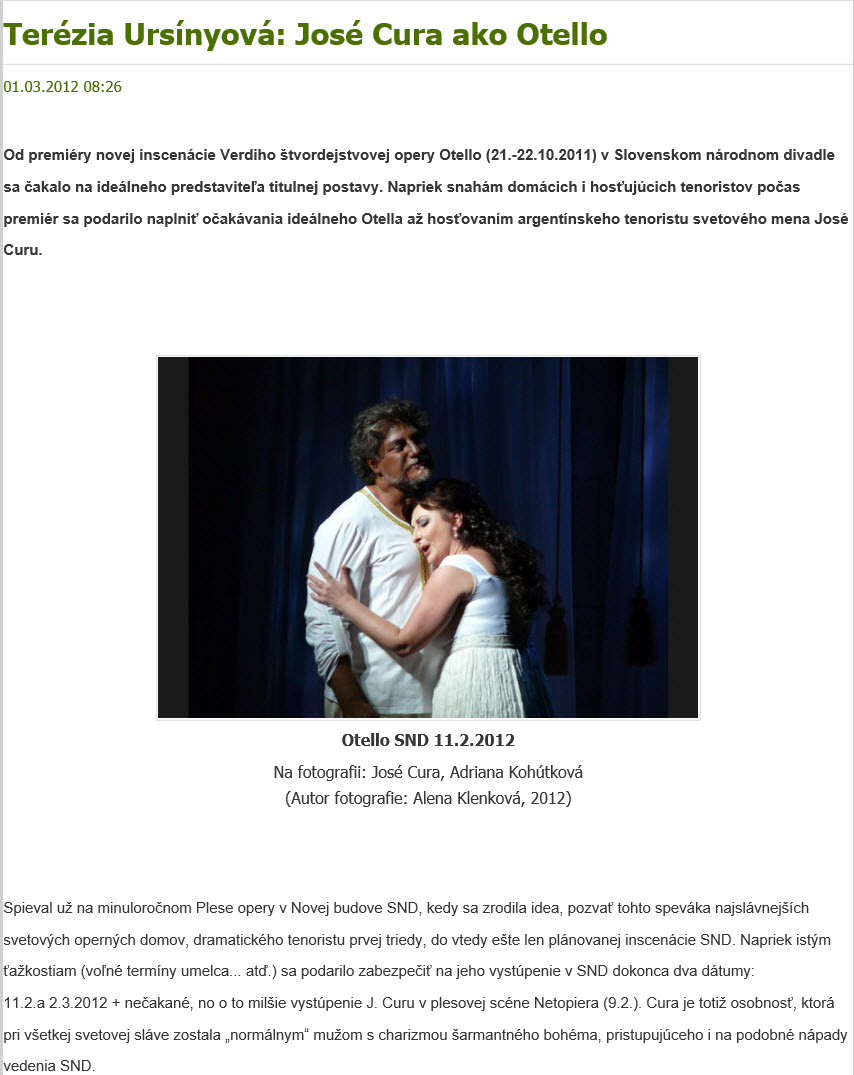 |
|
|
|
Last Updated: Sunday, November 03, 2024 © Copyright: Kira